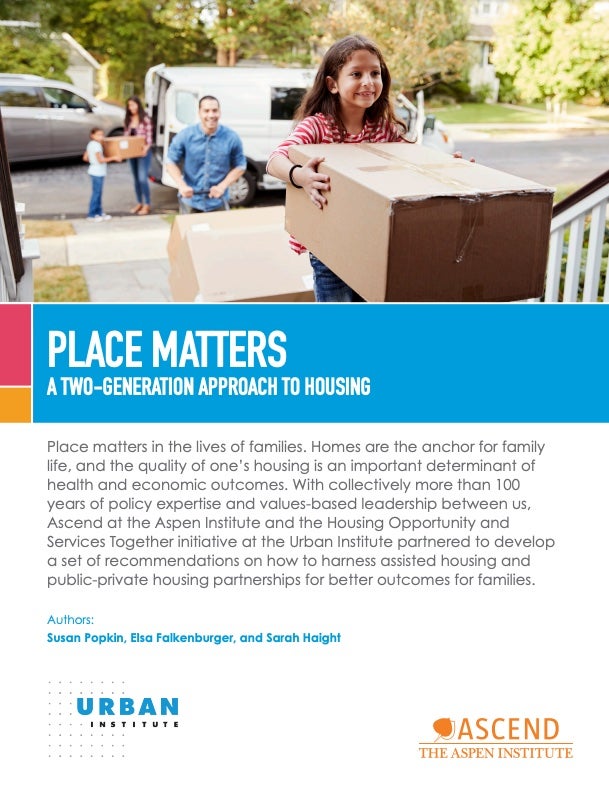
Place Matters: A Two-Generation Approach to Housing
With collectively more than 100 years of policy expertise and values-based leadership between us, Ascend at the Aspen Institute and the Housing Opportunity and Services Together initiative at the Urban Institute partnered to develop a set of recommendations on how to harness assisted housing and public-private housing partnerships for better outcomes for families. By Dr. Susan Popkin, director of the Urban Institute’s HOST Initiative and Institute Fellow in the Metropolitan Housing and Communities Policy Center; Elsa Falkenburger, MPA, senior research associate in the Metropolitan Housing and Communities Policy Center at the Urban Institute; and Sarah Haight, MSW, assistant director for network and outreach at Ascend. (December 2018)
Related Resources

Harnessing Executive Skills for Goal Achievement: Bright Path Workshop
Read More
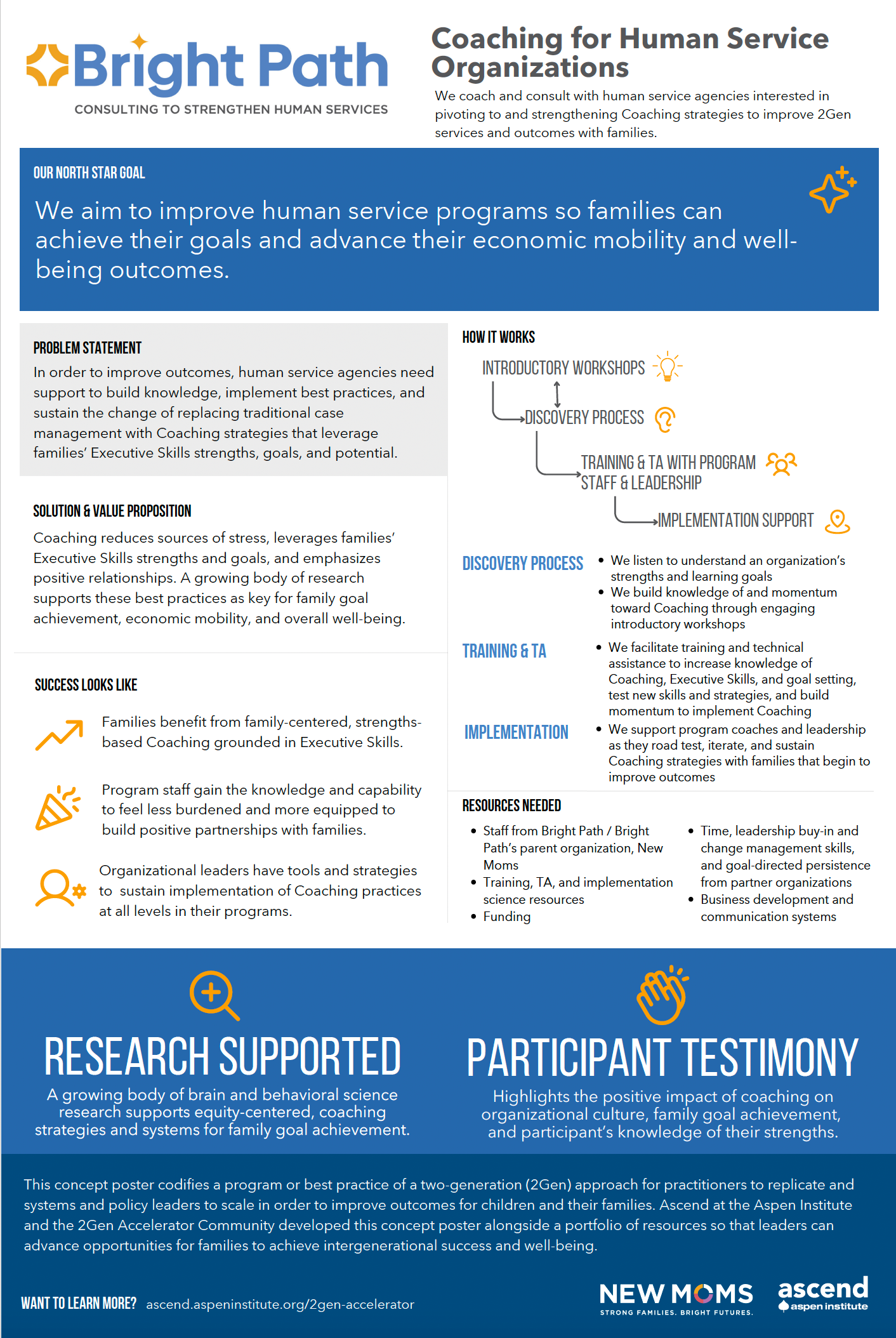
Bright Path: Coaching for Human Service Organizations (2Gen Concept Poster)
Read More

The Magnolia Mother’s Trust Case Study Narrative Report
Read More

The Magnolia Mother’s Trust 2023–2024 Evaluation & Case Study Report
Read More
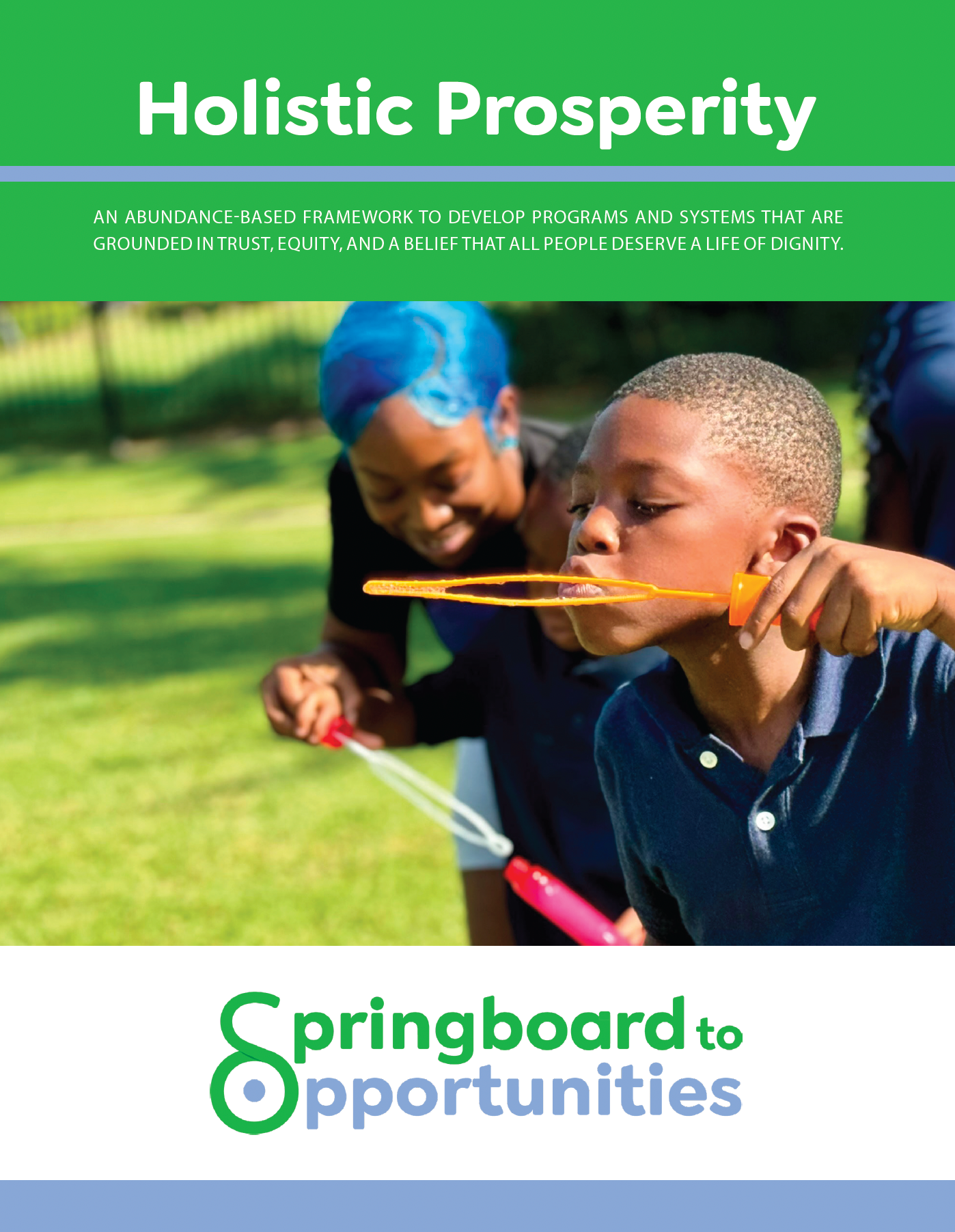
Holistic Prosperity: An Abundance-Based Framework
Read More
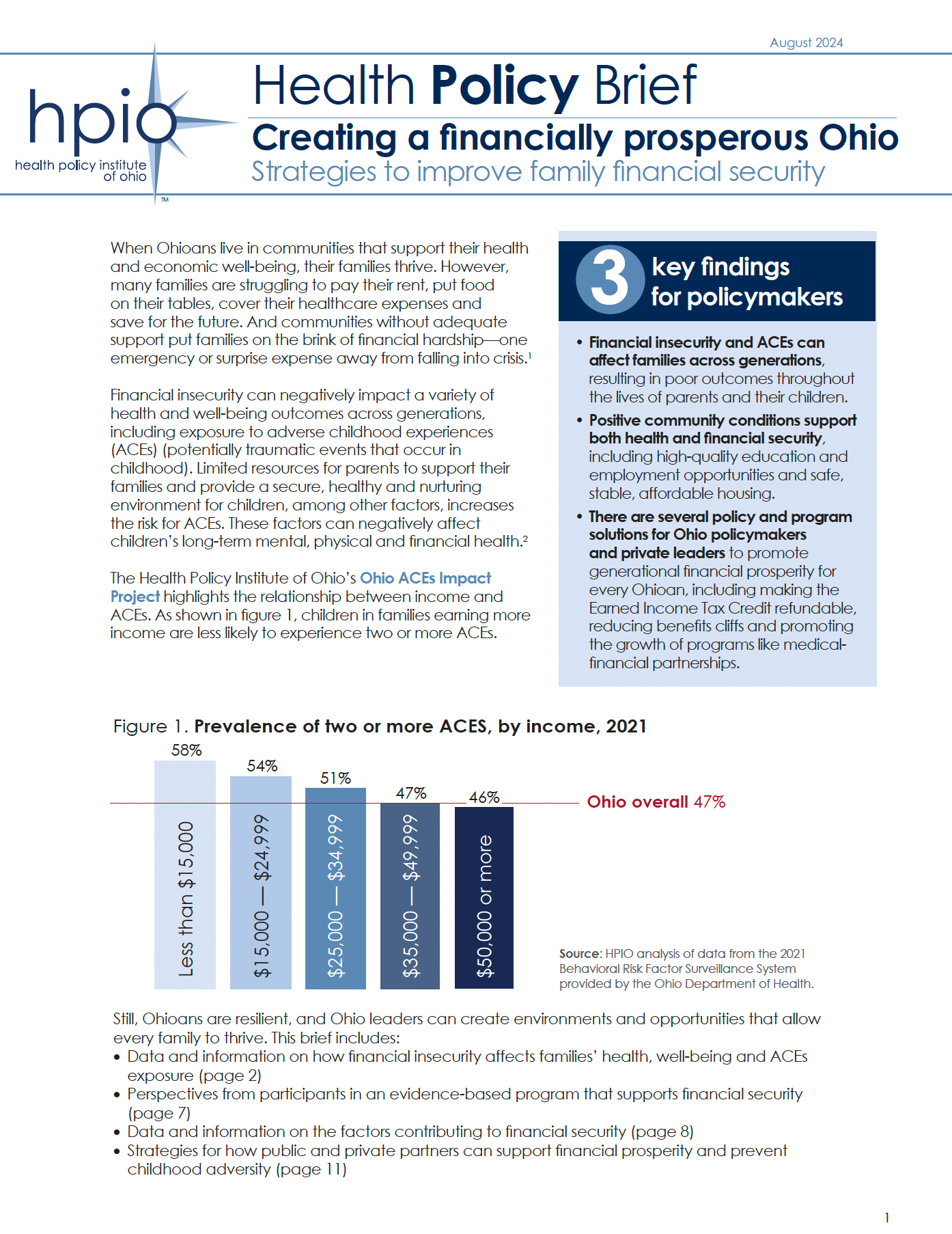
Creating Financial Prosperity for Ohio Families: Health Policy Brief
Read More
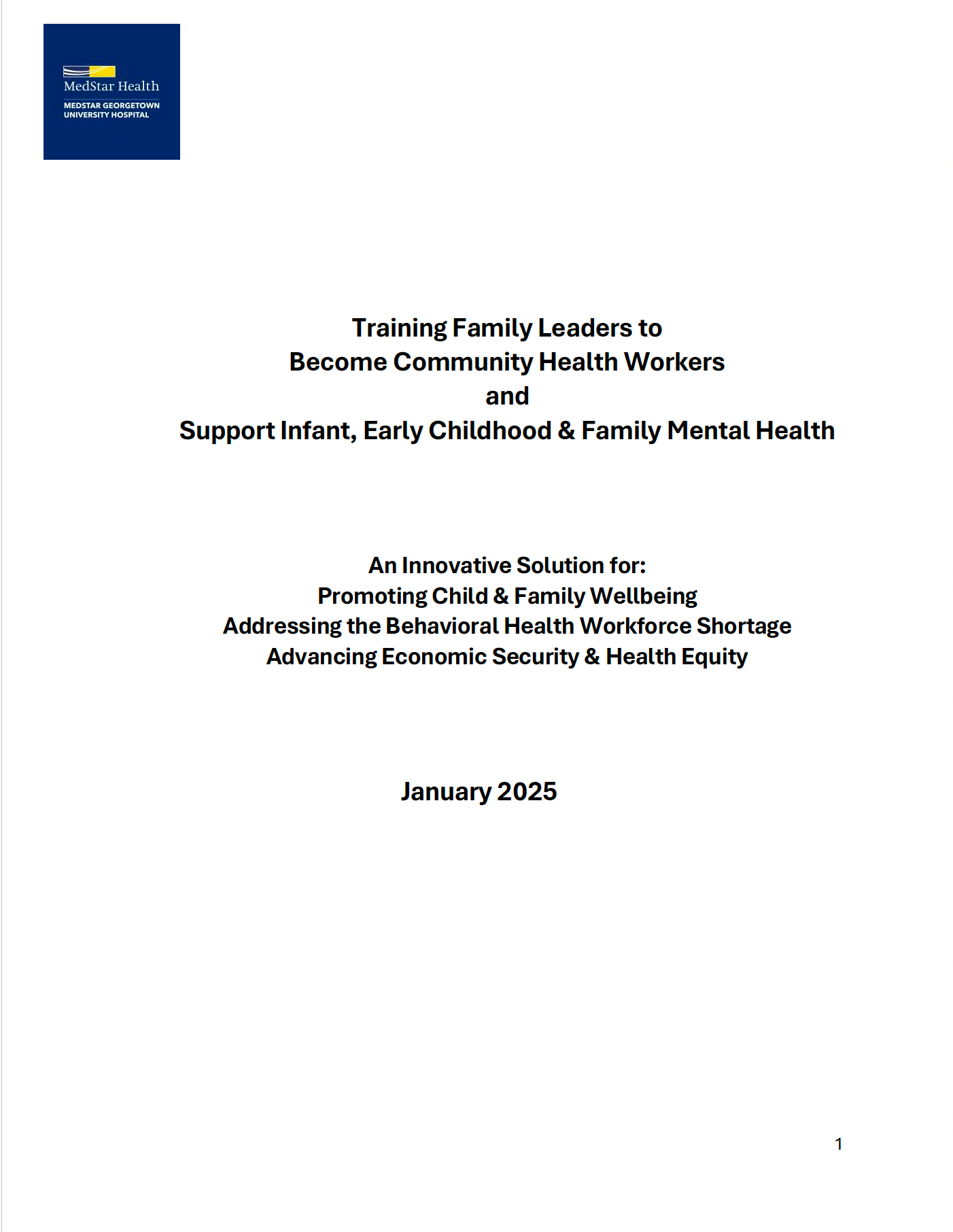
Training Family Leaders as Community Health Workers: National Policy Brief
Read More
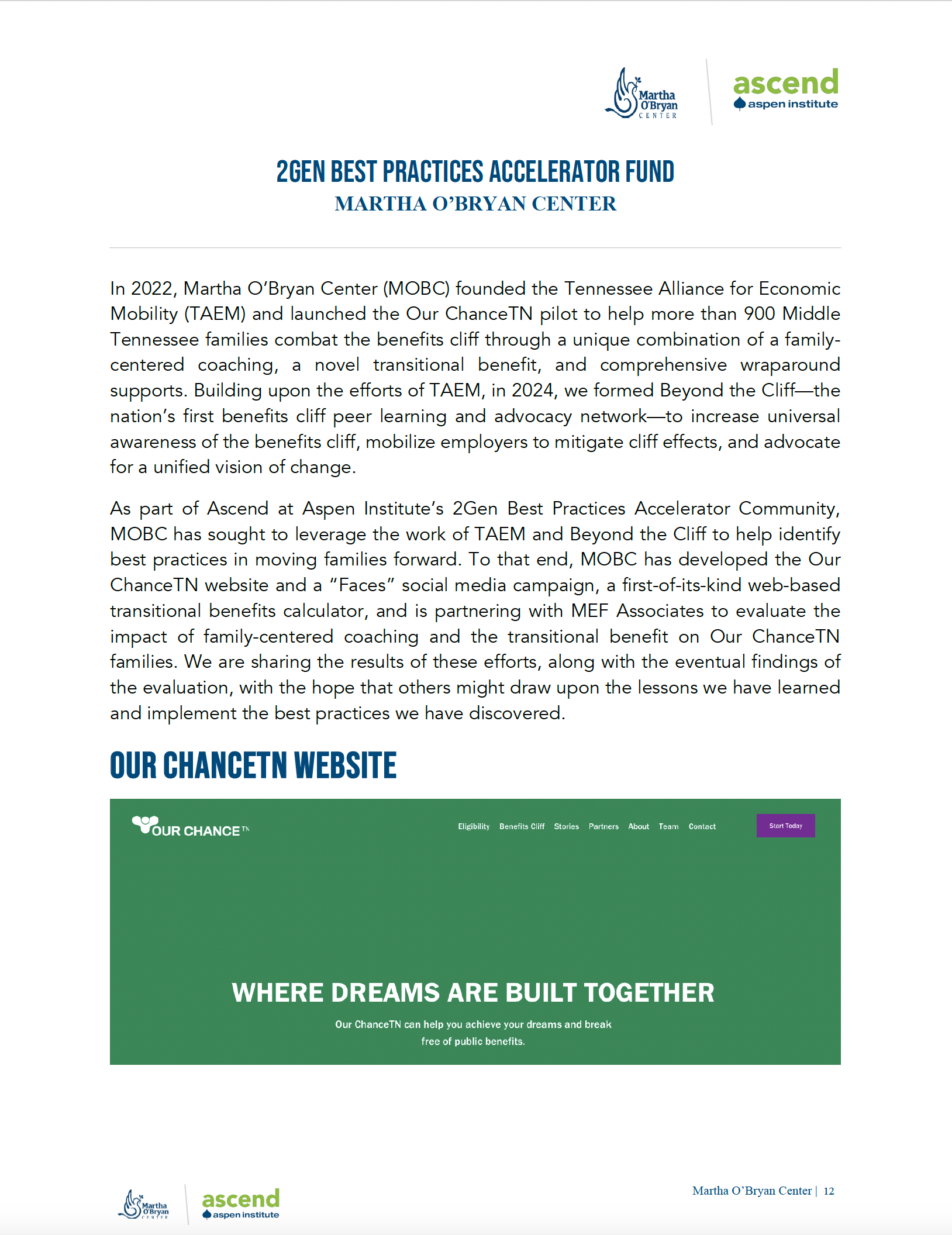
Addressing the Benefits Cliff: Chance TN Pilot
Read More
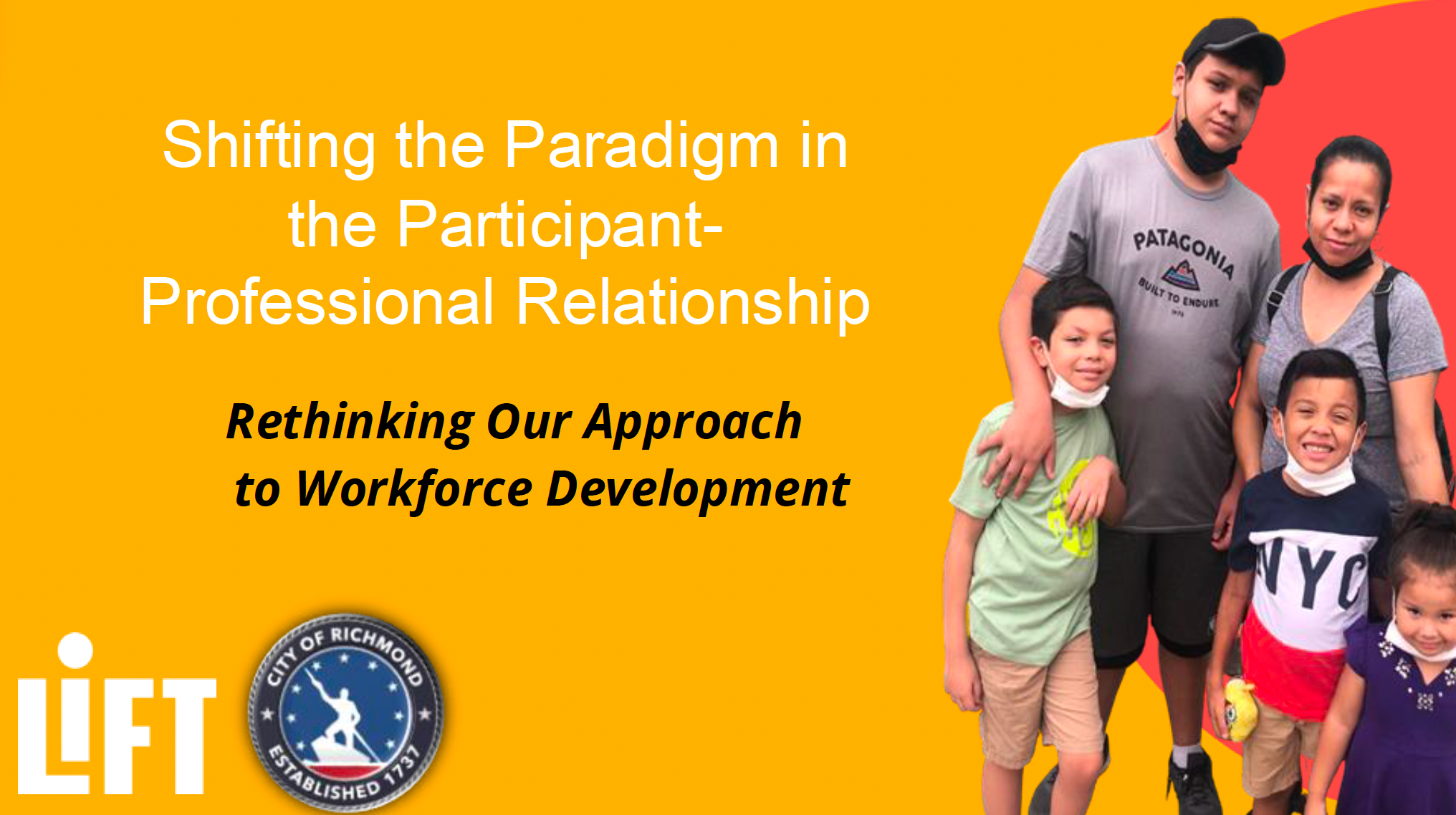
Shifting the Paradigm in Workforce Development: Coaching-Centered Practice
Read More
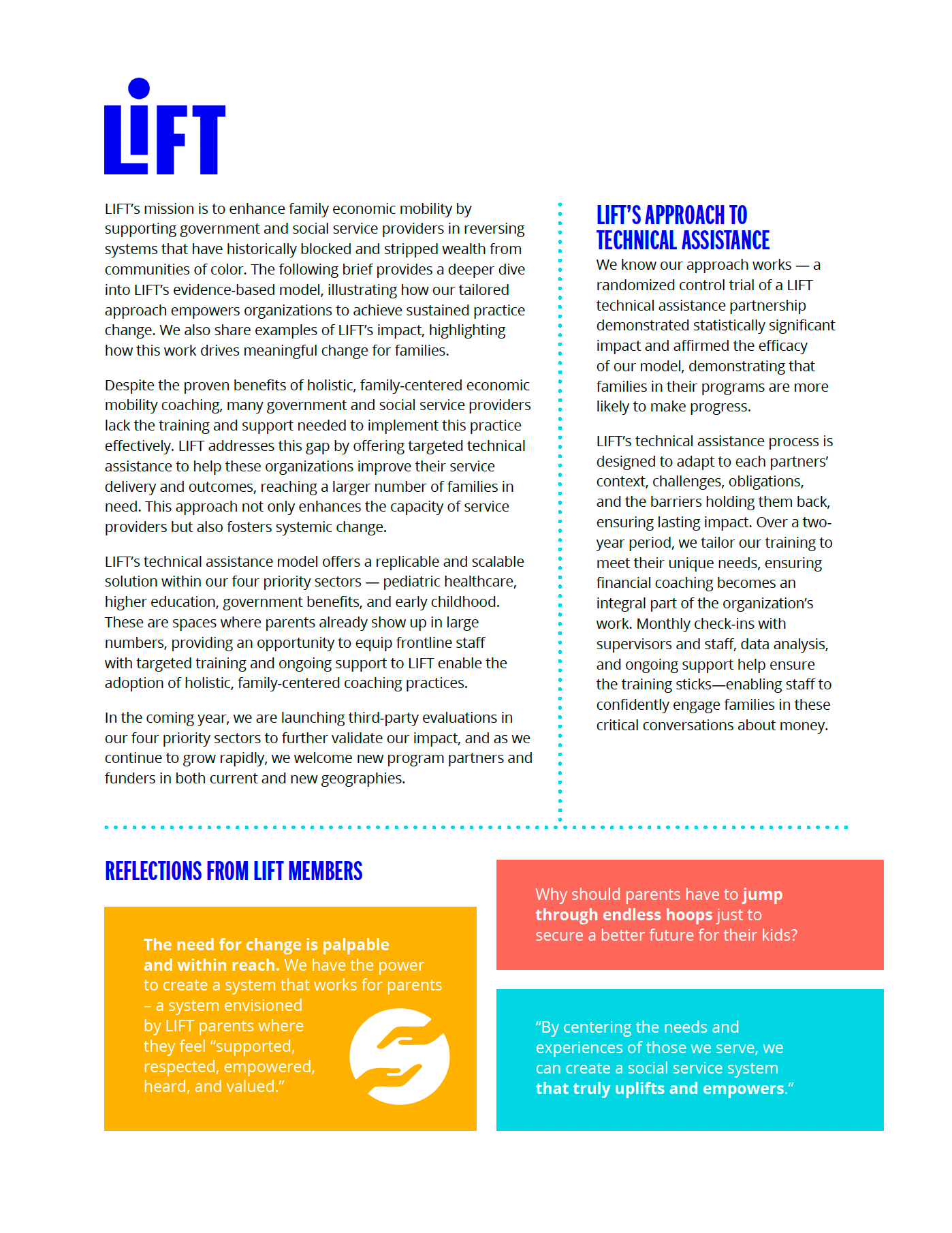
LIFT Technical Assistance Model: Advancing Family Economic Mobility
Read More
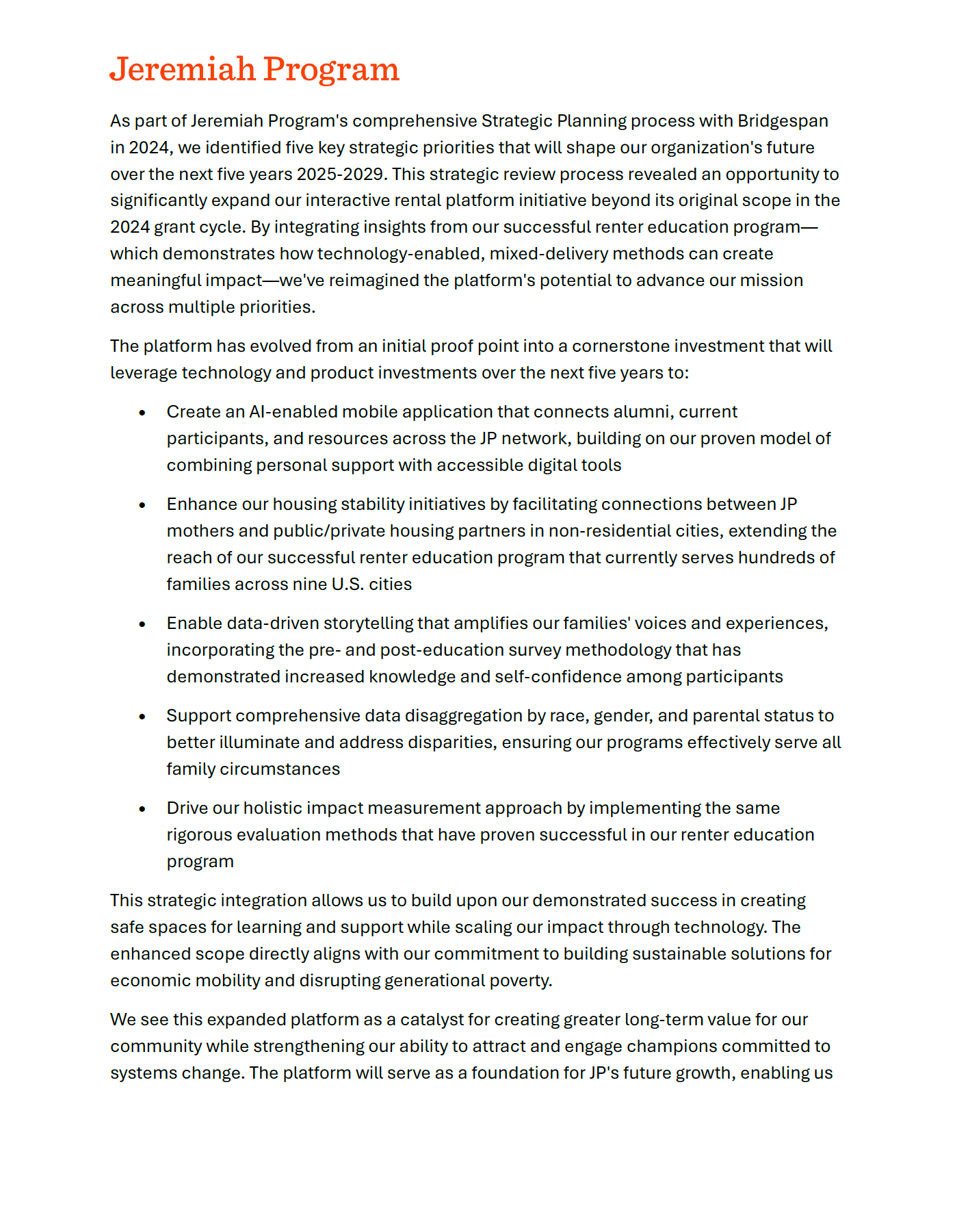
Jeremiah Program Strategic Priorities
Read More
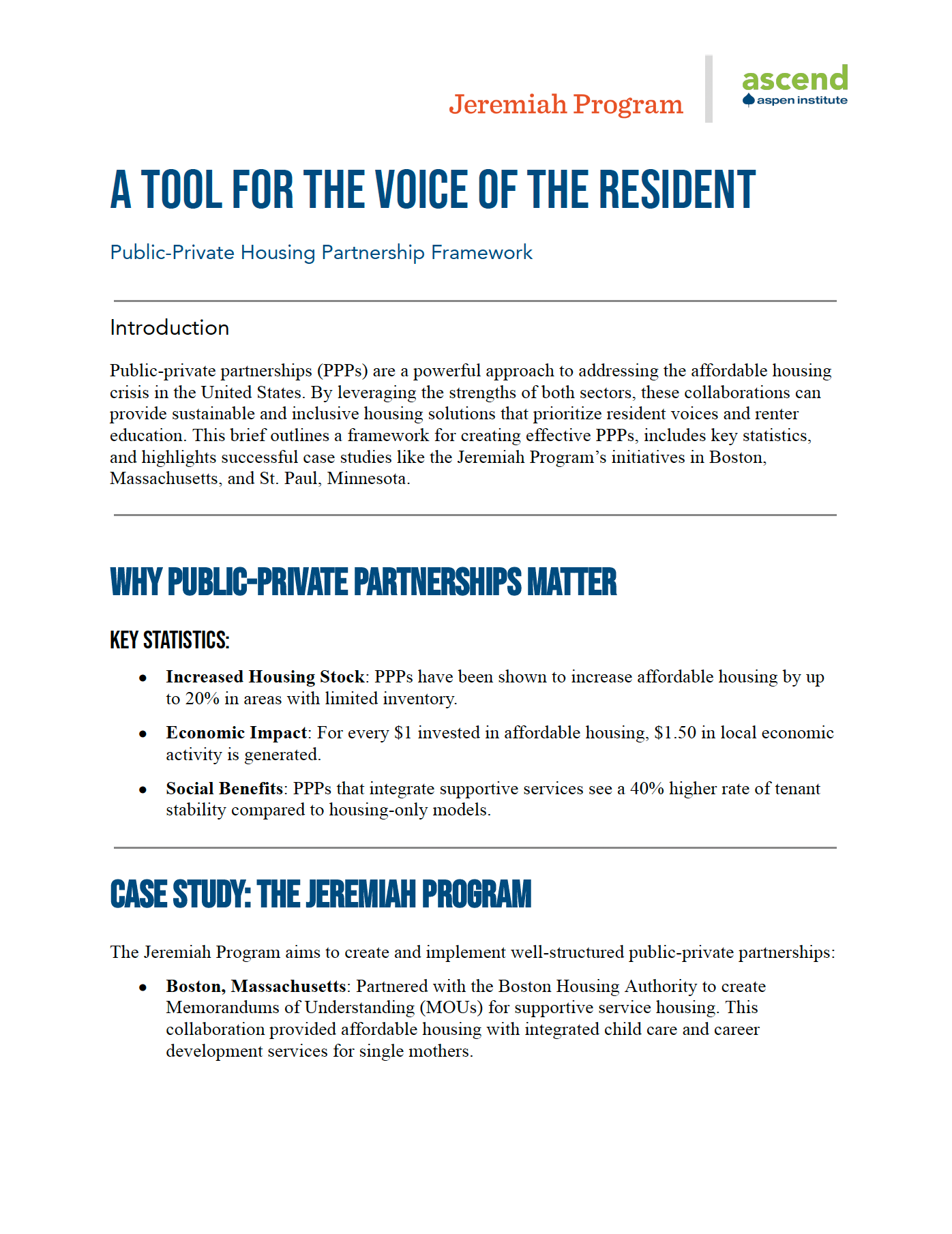
Public-Private Housing Partnership Framework: Centering Resident Voice
Read More
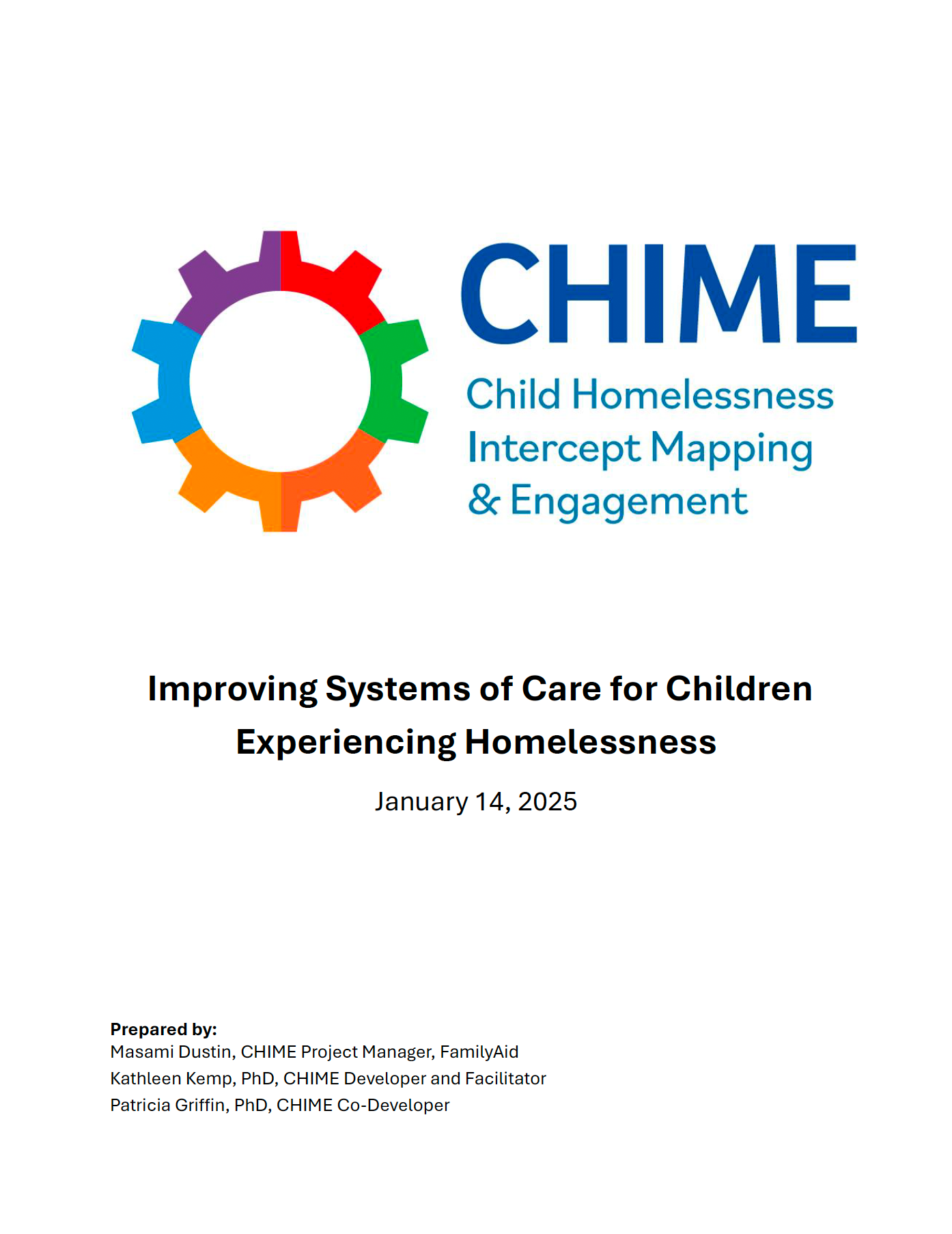
Child Homelessness Intercept Mapping & Engagement (CHIME): Improving Systems of Care for Children Experiencing Homelessness
Read More
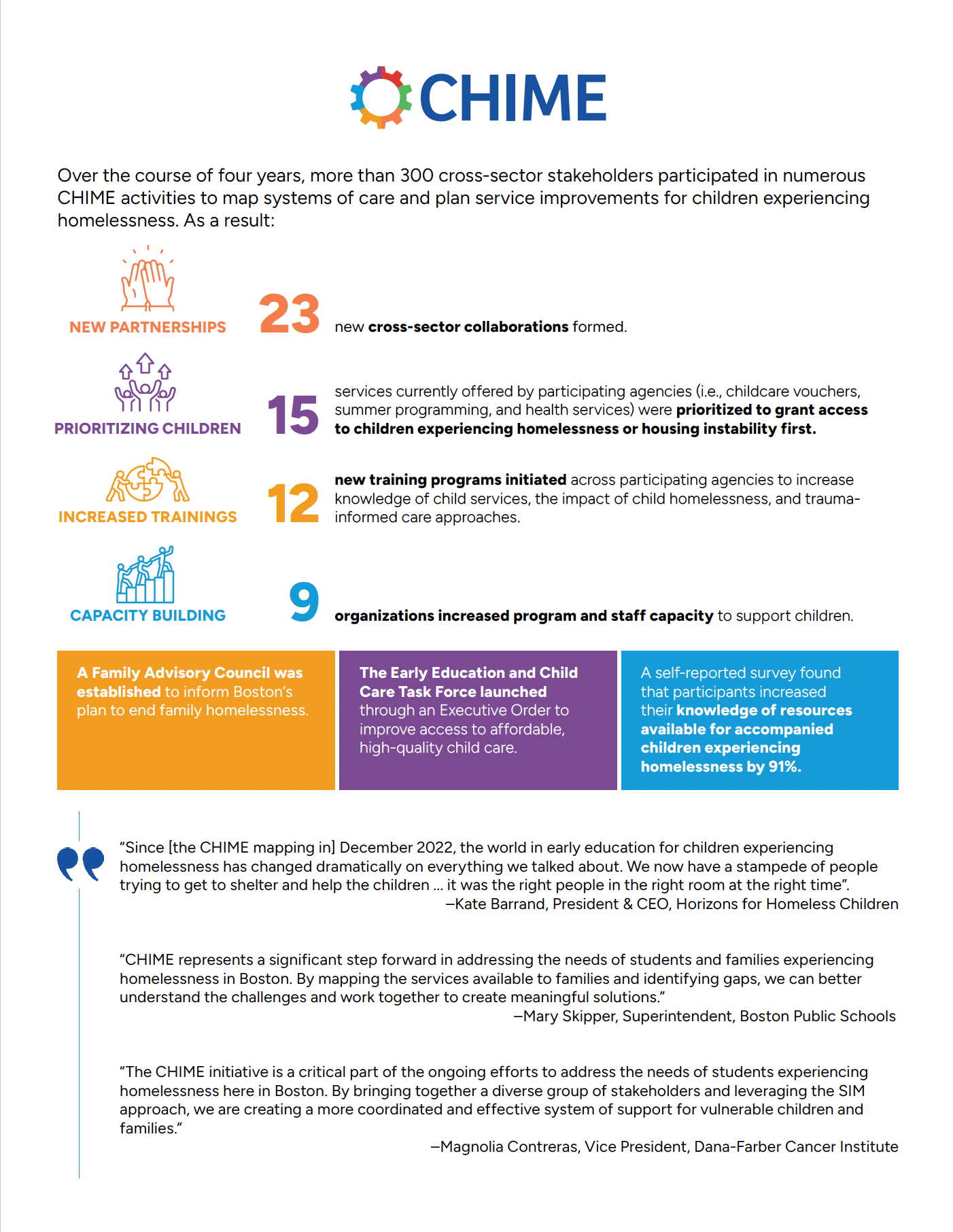
CHIME Outcomes: One-Pager Overview
Read More
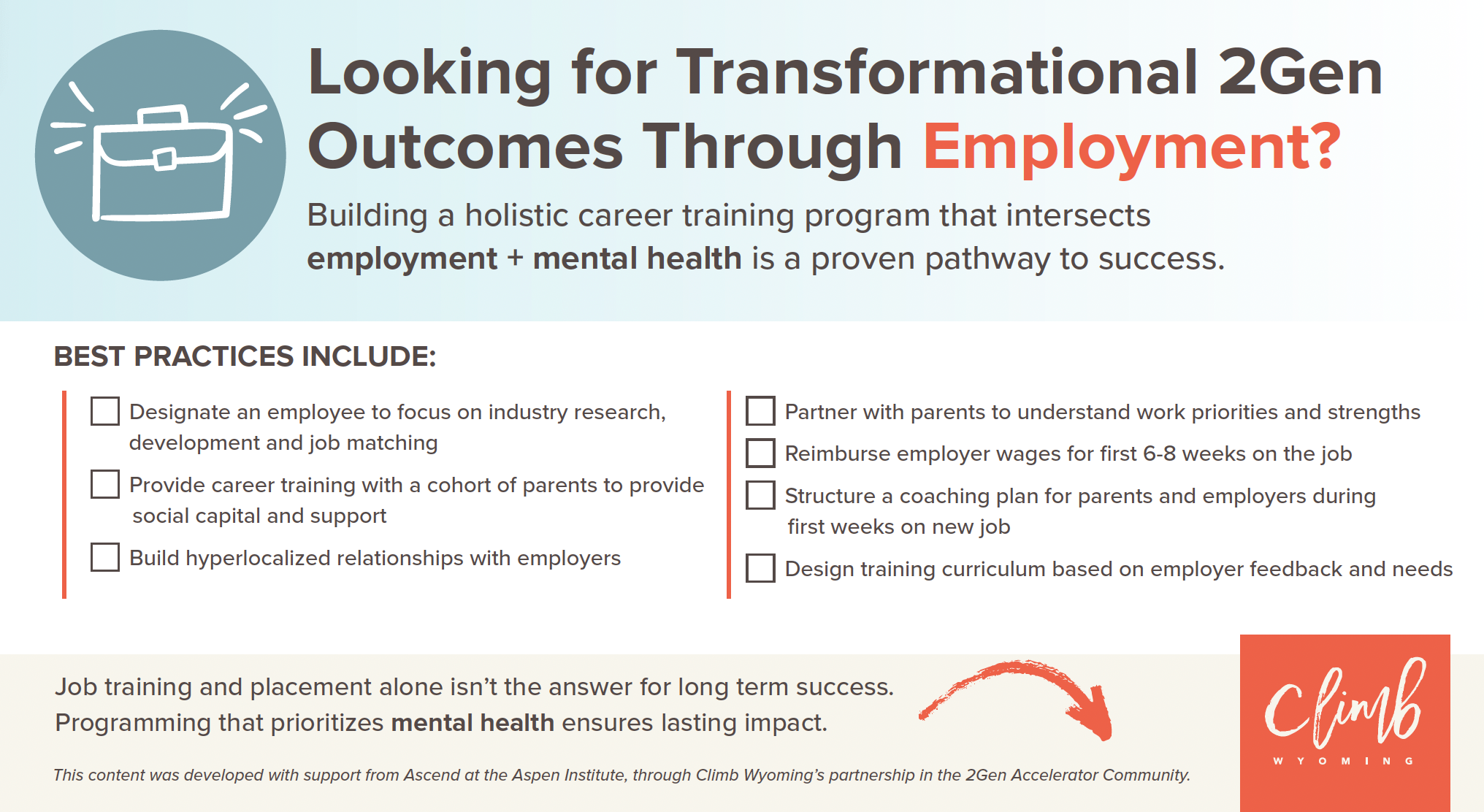
2Gen Employment Best Practices Checklist
Read More
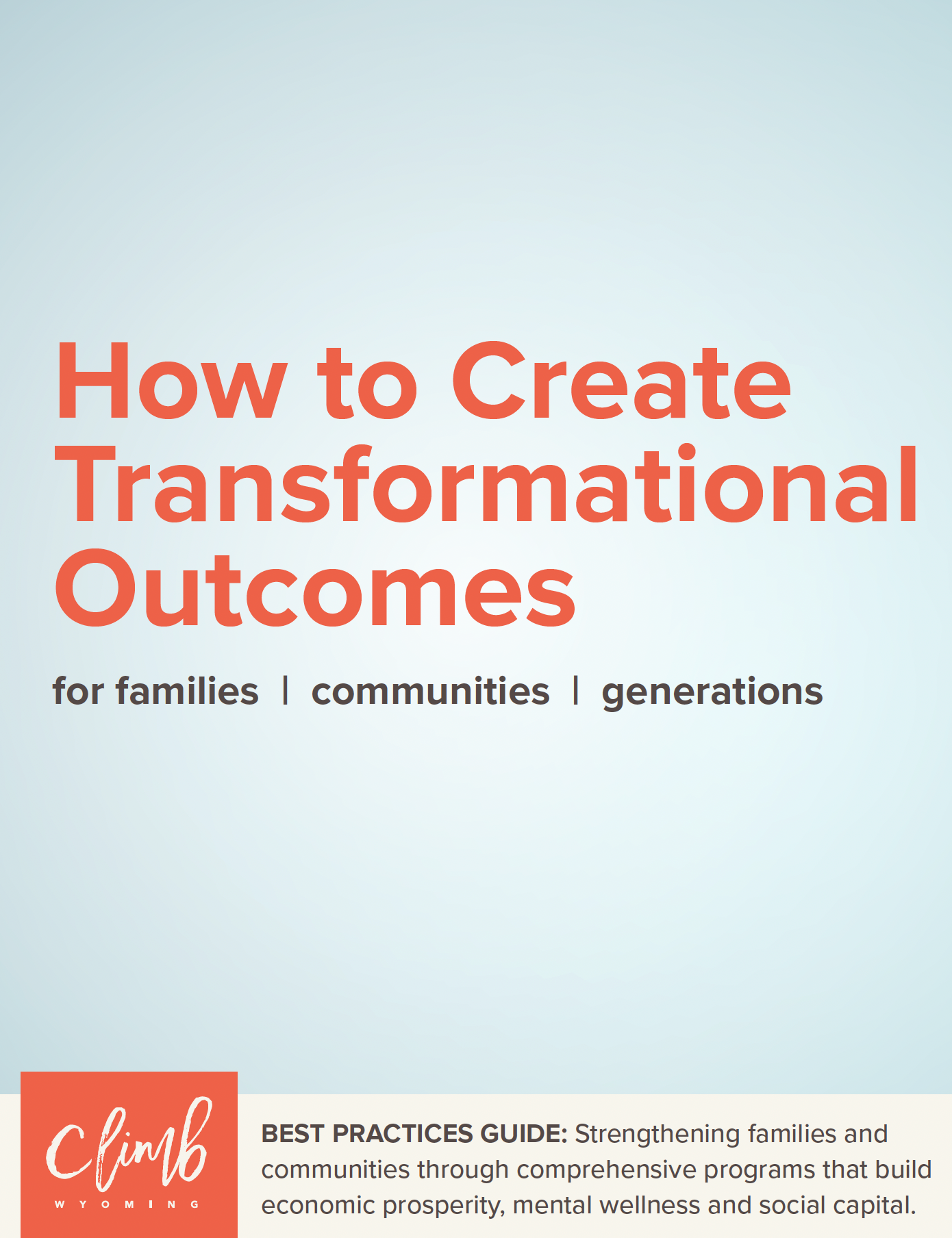
Best Practices Guide: Creating Transformational Outcomes for Families
Read More

Start Young Gap Funding Listening Sessions: Findings Summary
Read More

Gap Funding: Program Toolkit
Read More

Gap Funding: Issue Brief
Read More
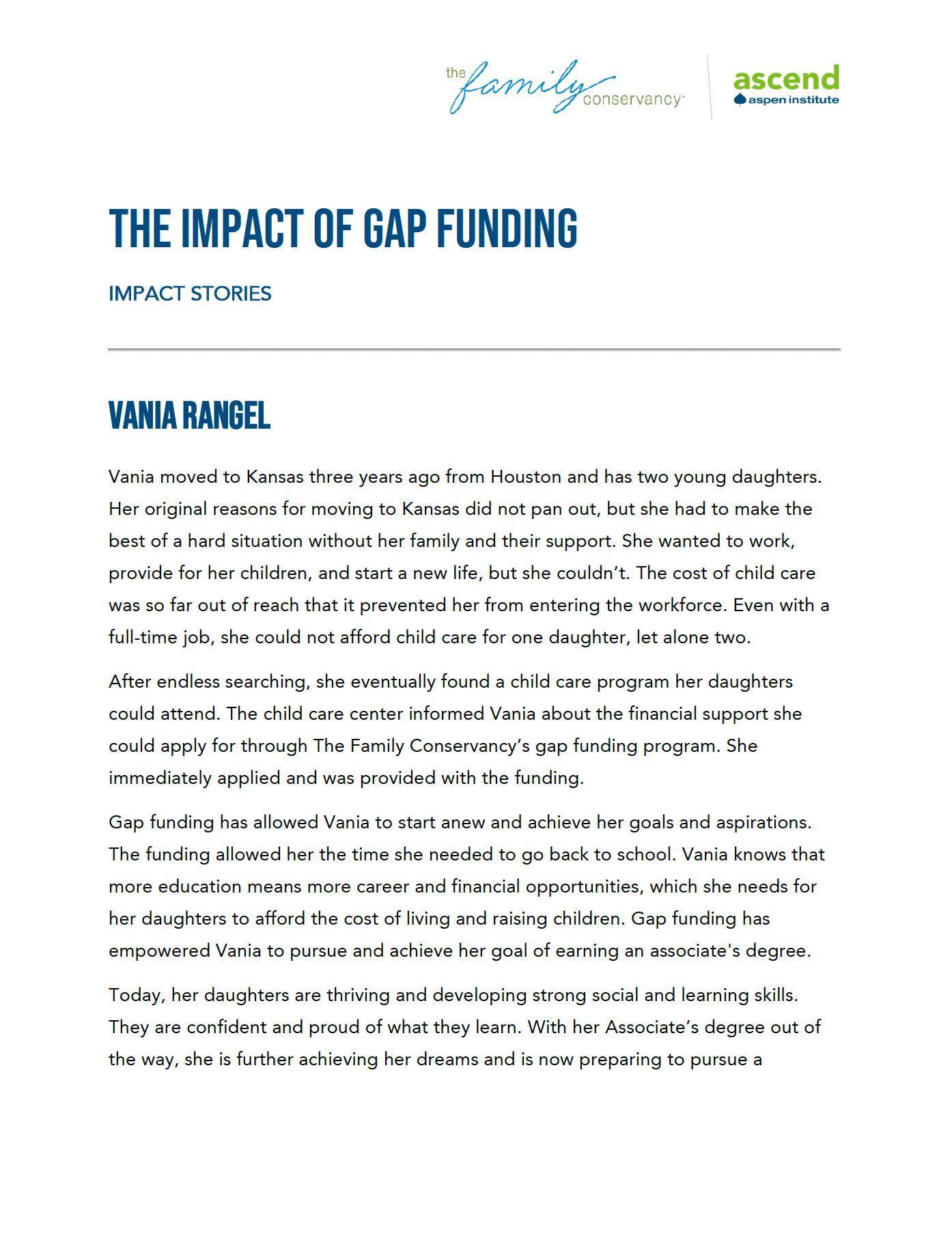
Gap Funding: Impact Stories
Read More
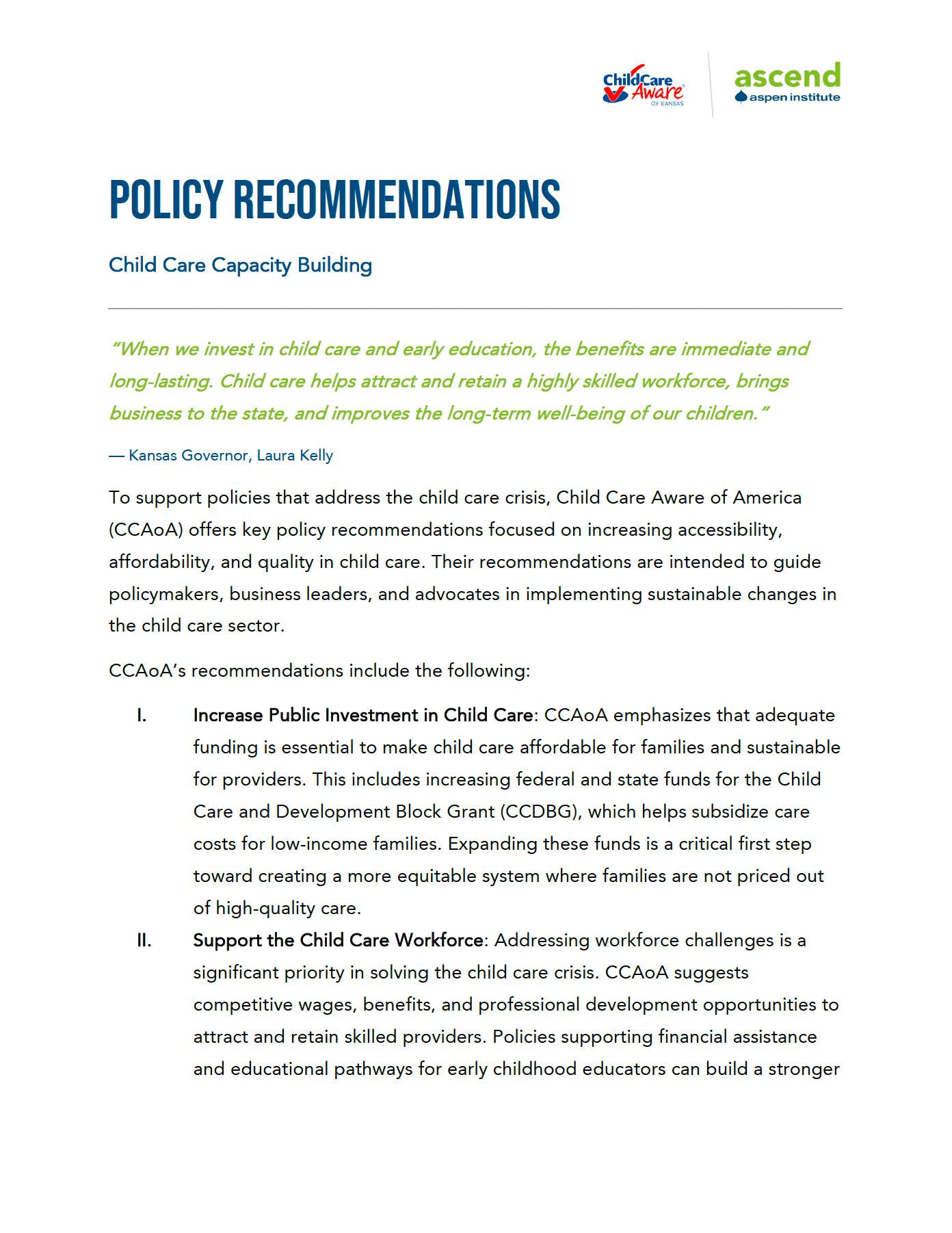
Baby Steps – Policy Recommendations
Read More
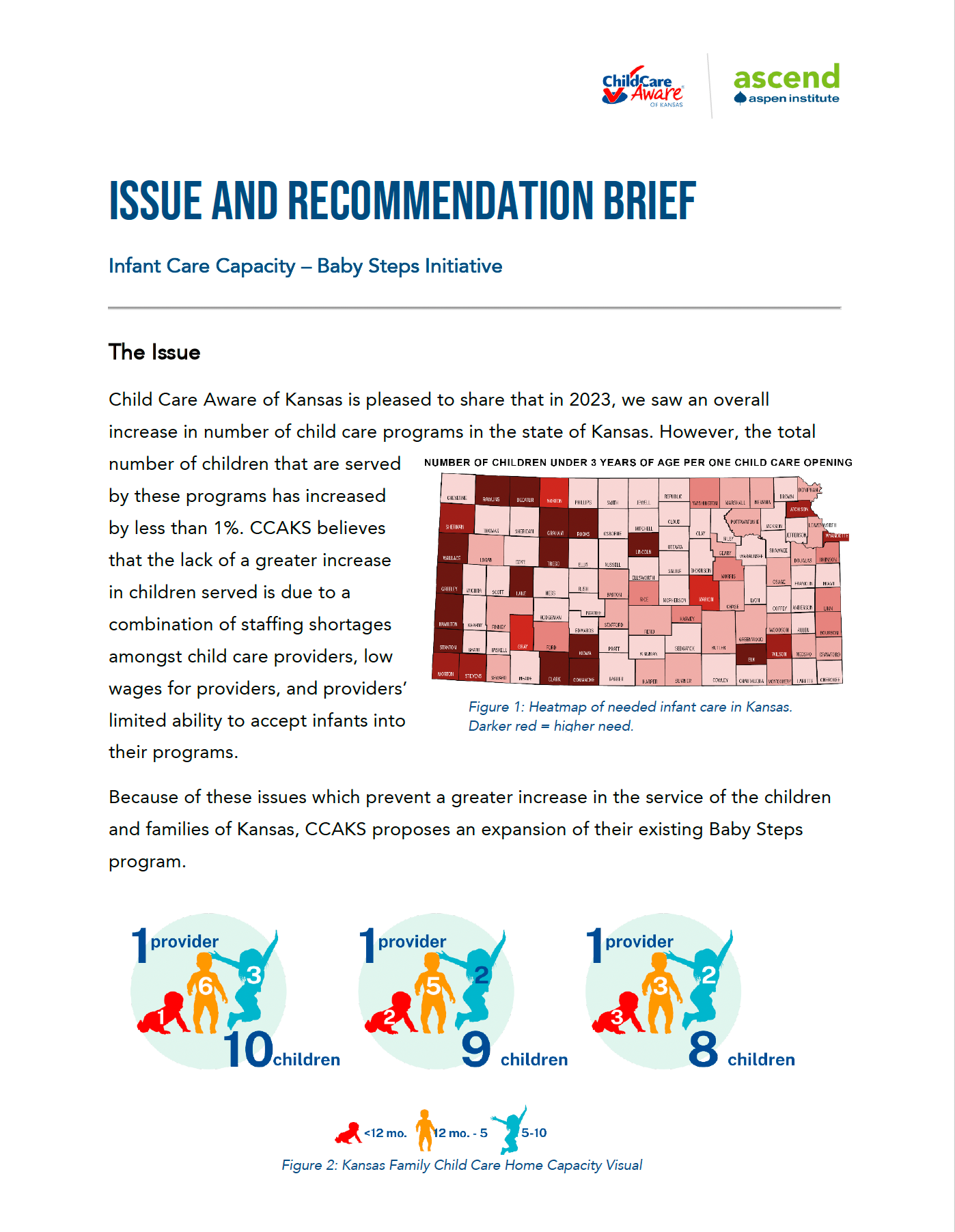
Baby Steps – Issue and Recommendation Brief
Read More

Baby Steps Implementation Toolkit: Supporting Infant Care Growth and Provider Longevity
Read More

Capitalizing Good Ideas to Transform the Lives of Children and Families
Read More
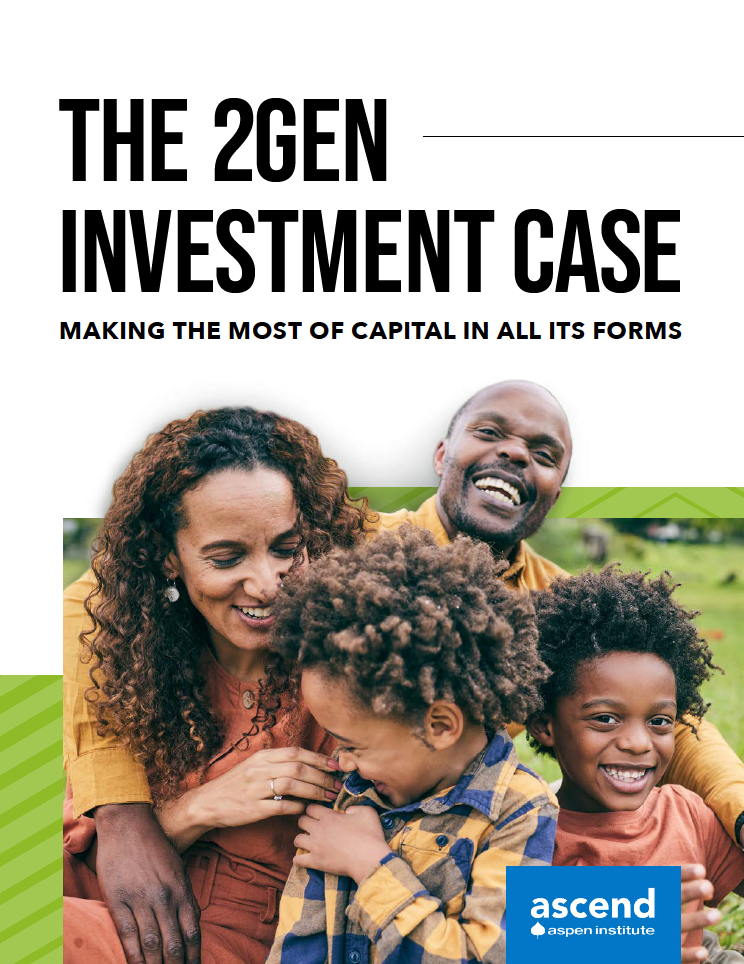
The 2Gen Investment Case: Making the Most of Capital in All its Forms
Read More
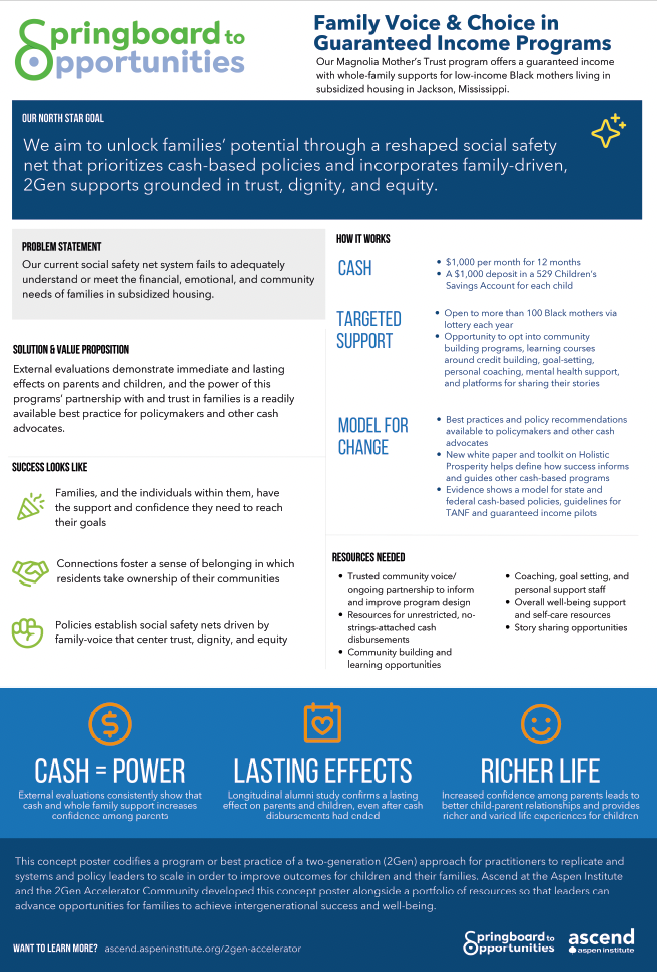
Family Voice & Choice in Guaranteed Income Programs
Read More
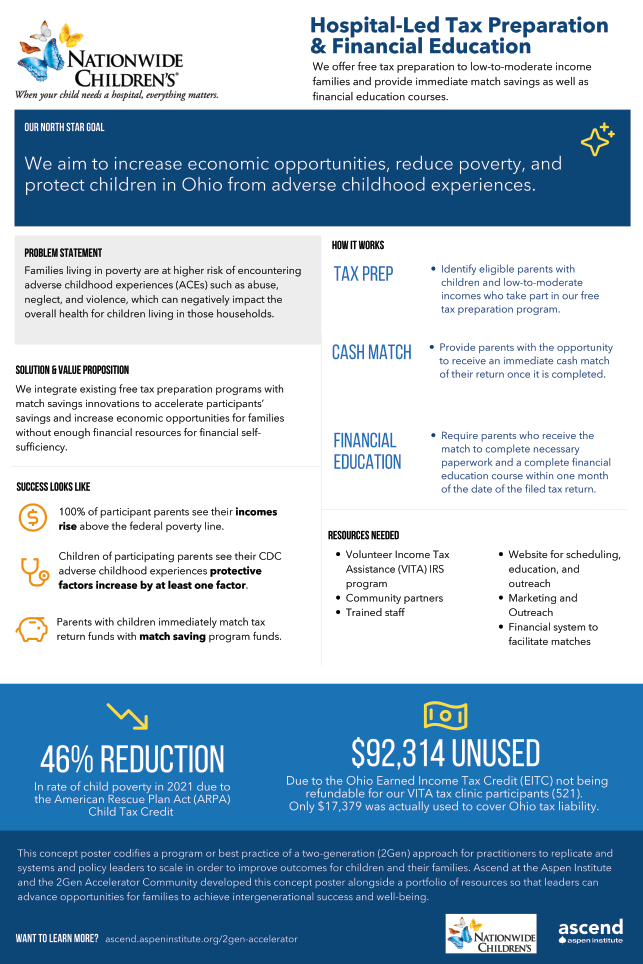
Hospital-Led Tax Preparation & Financial Education
Read More
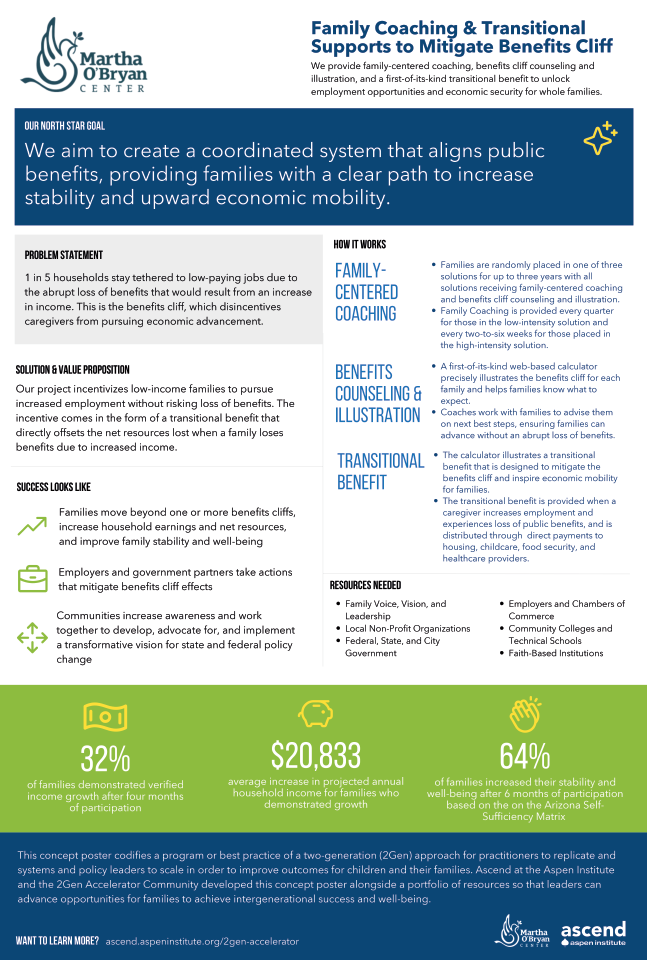
Family Coaching & Transitional Supports to Mitigate Benefits Cliff
Read More
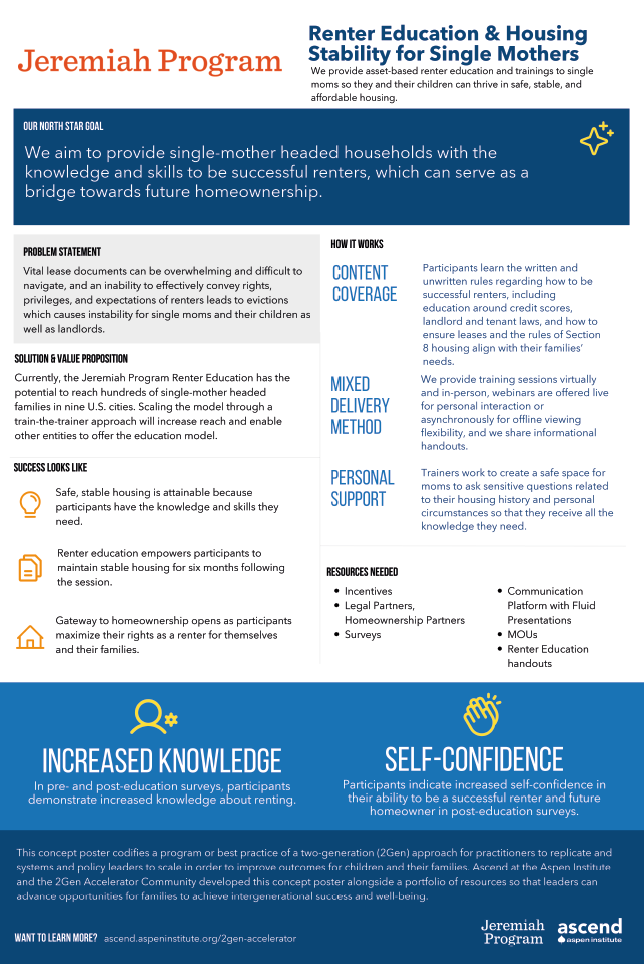
Renter Education & Housing Stability for Single Mothers
Read More
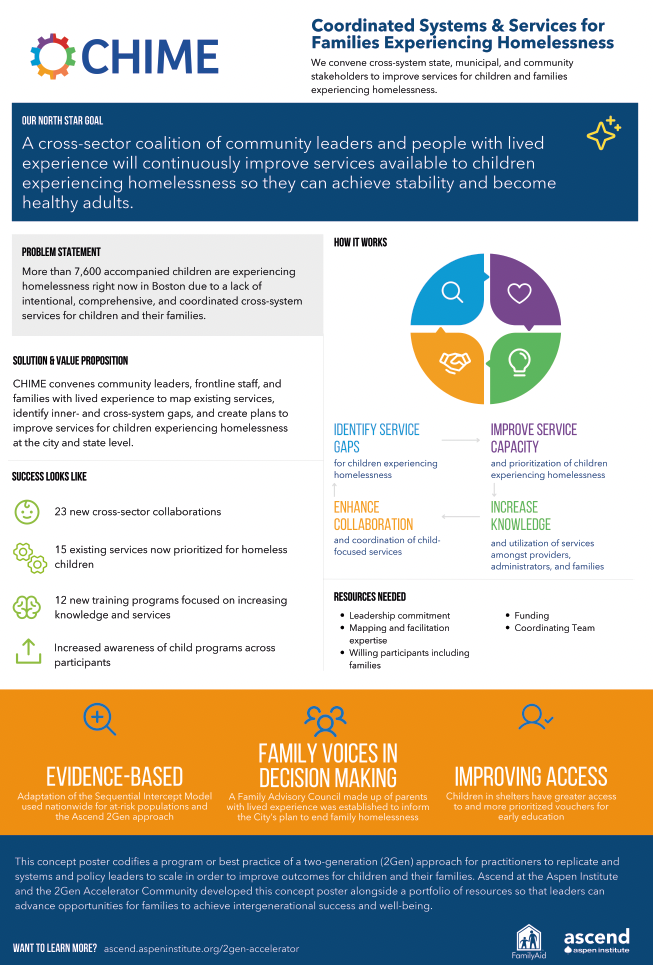
Coordinated Systems & Services for Families Experiencing Homelessness
Read More
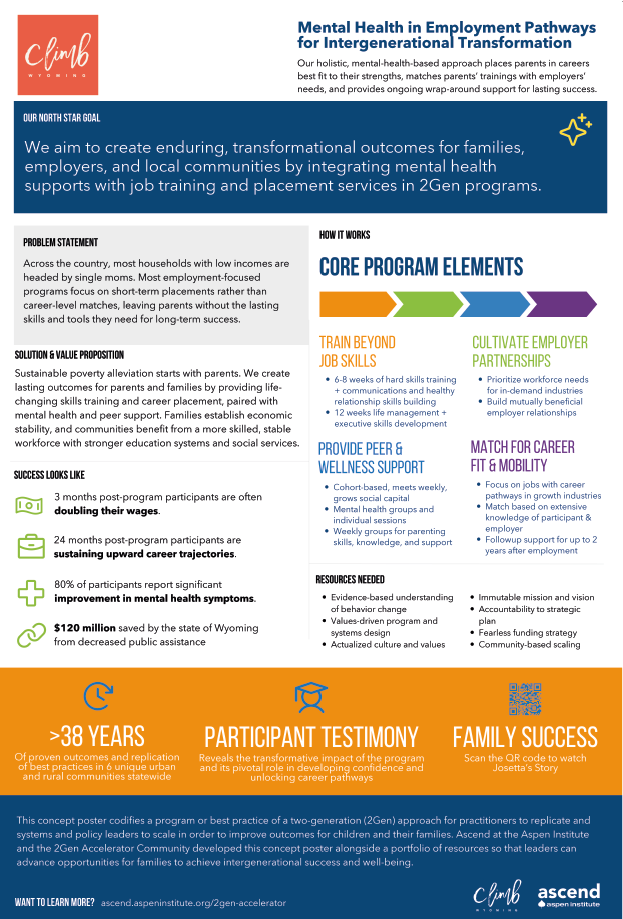
Mental Health in Employment Pathways for Intergenerational Transformation
Read More
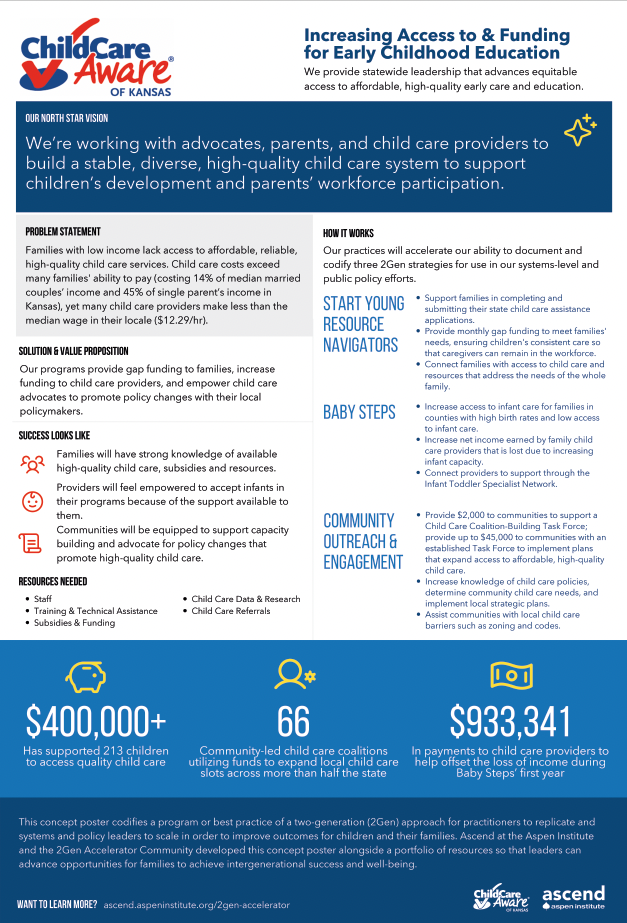
Increasing Access to & Funding for Early Childhood Education
Read More
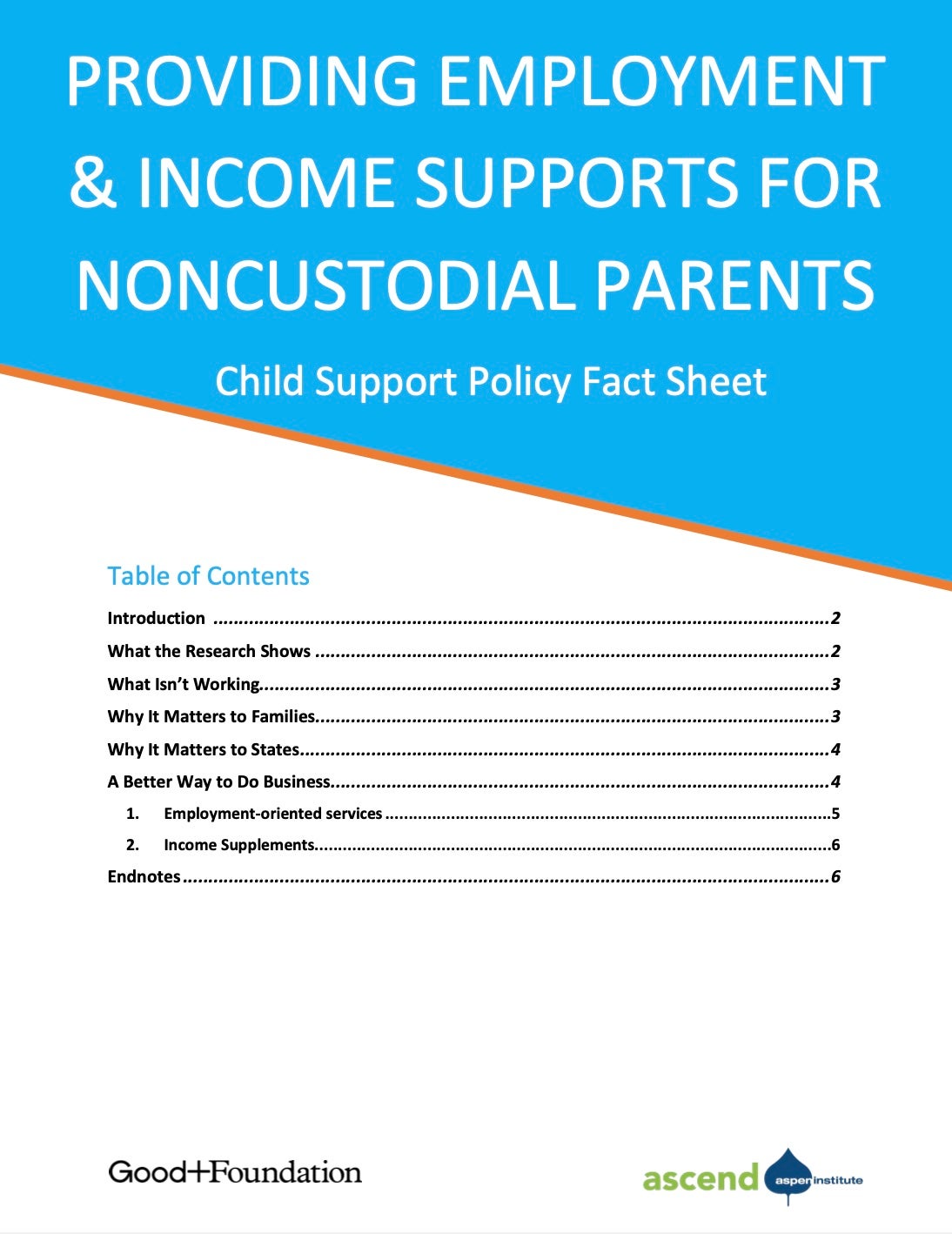
Providing Employment and Income Supports When Noncustodial Parents Have Barriers to Payment
Read More
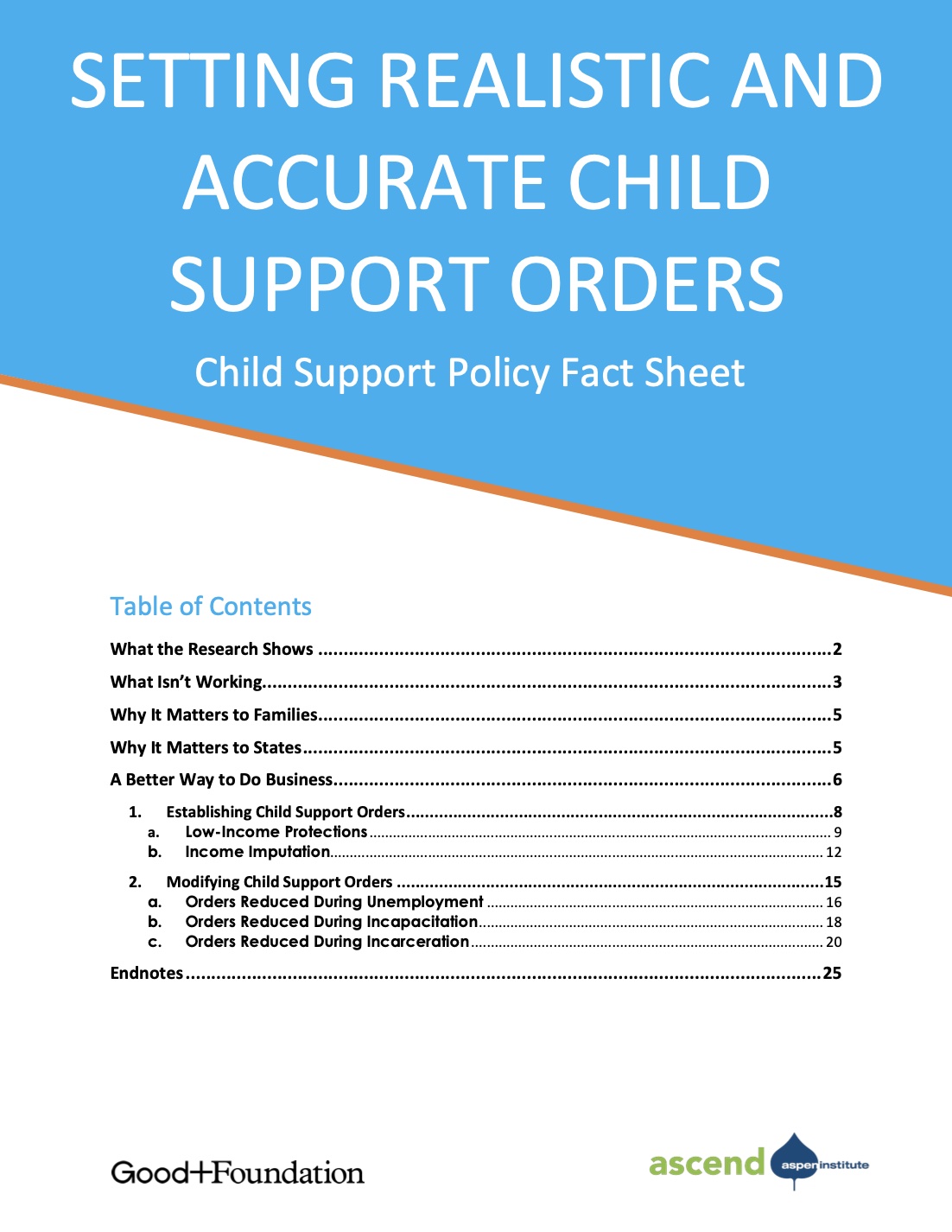
Setting Realistic and Accurate Child Support Orders
Read More
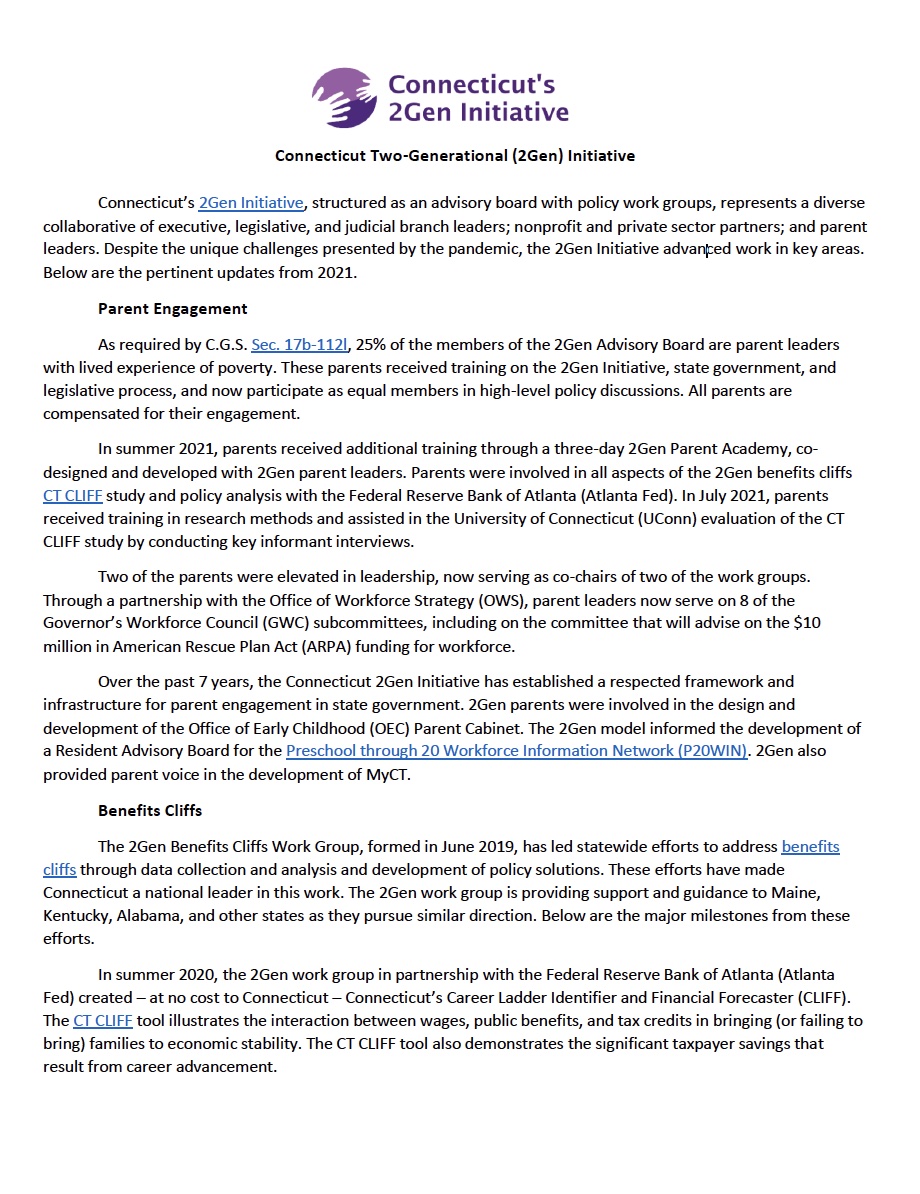
Connecticuts’s Two-Generational (2Gen) Initiative
Read More
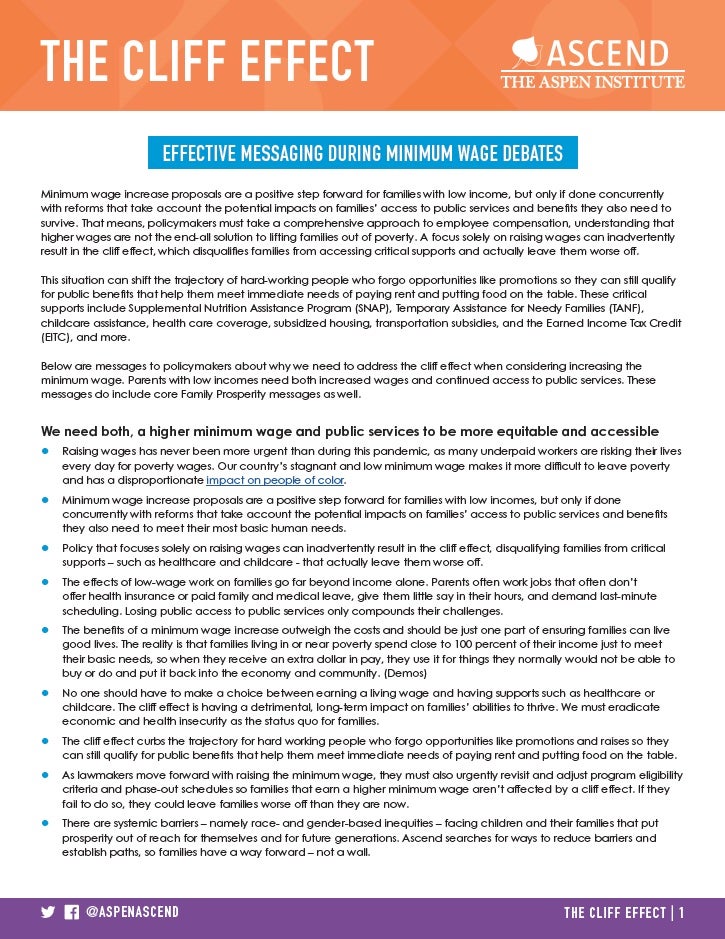
Cliff Effect Messaging Guide
Read More
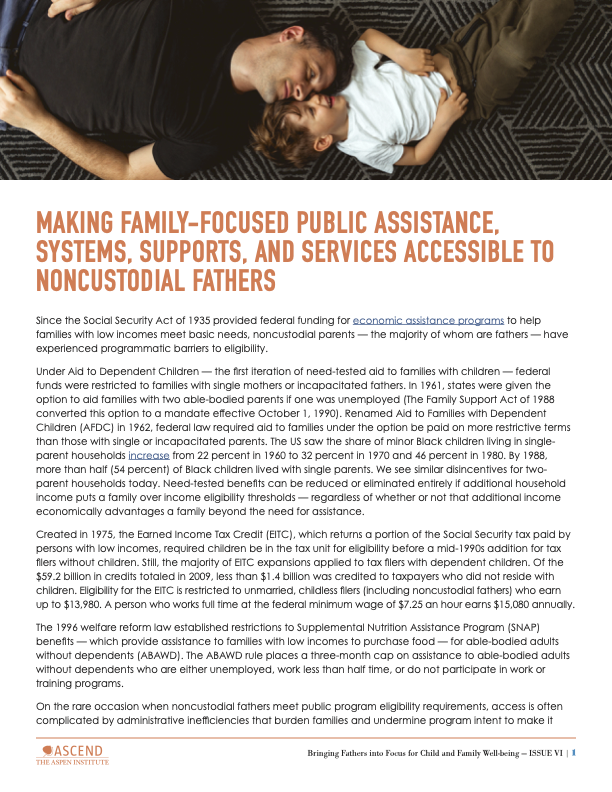
Making Family-Focused Public Assistance, Systems, Supports, and Services Accessible to Noncustodial Fathers
Read More
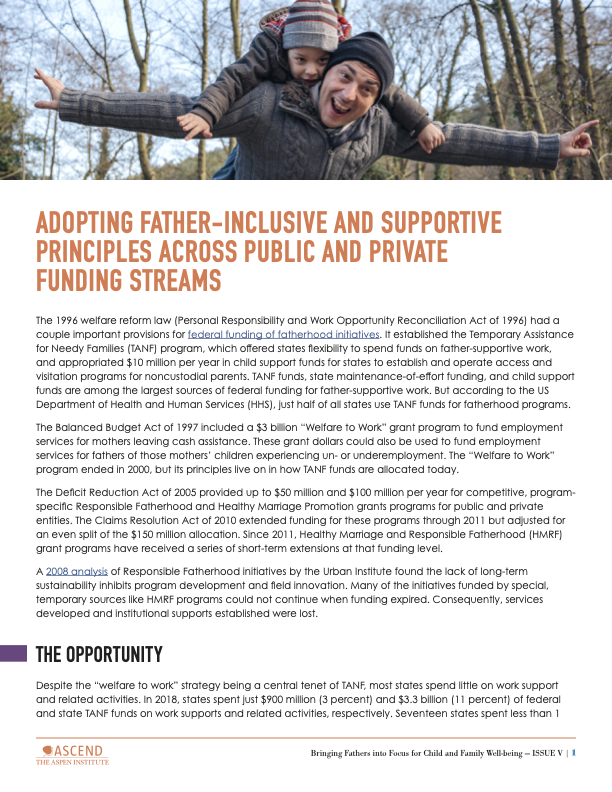
Adopting Father-Inclusive and Supportive Principles Across Public and Private Funding Streams
Read More
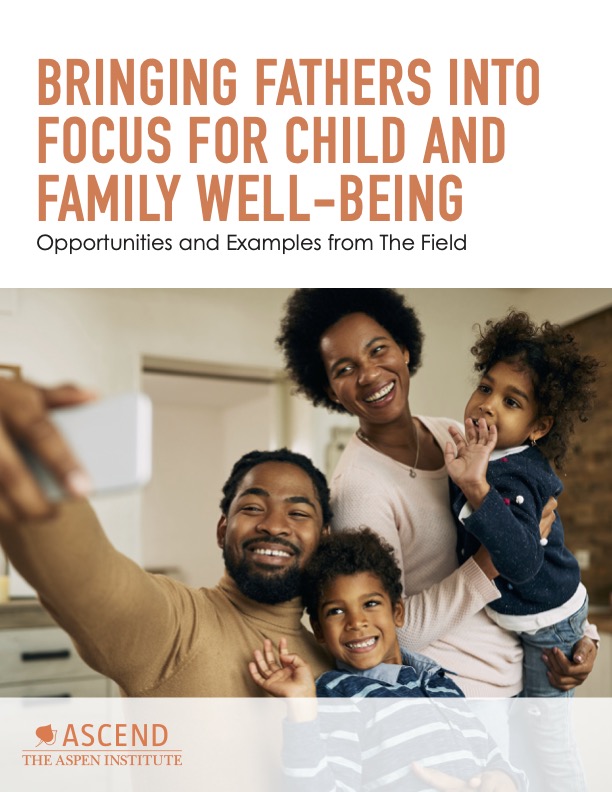
Bringing Fathers Into Focus for Child and Family Well-Being
Read More
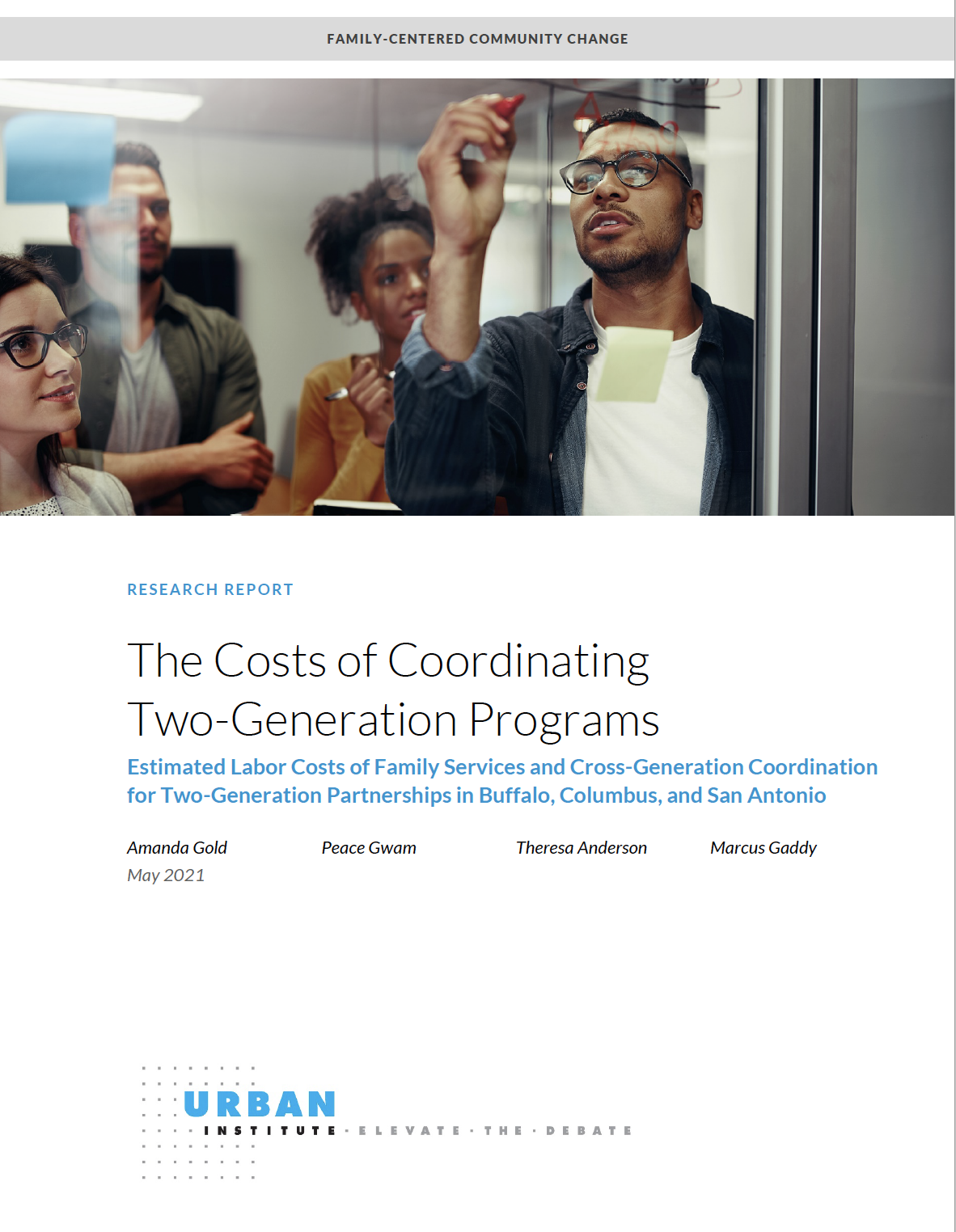
Urban Institute: The Costs of Coordinating Two-Generation Programs
Read More
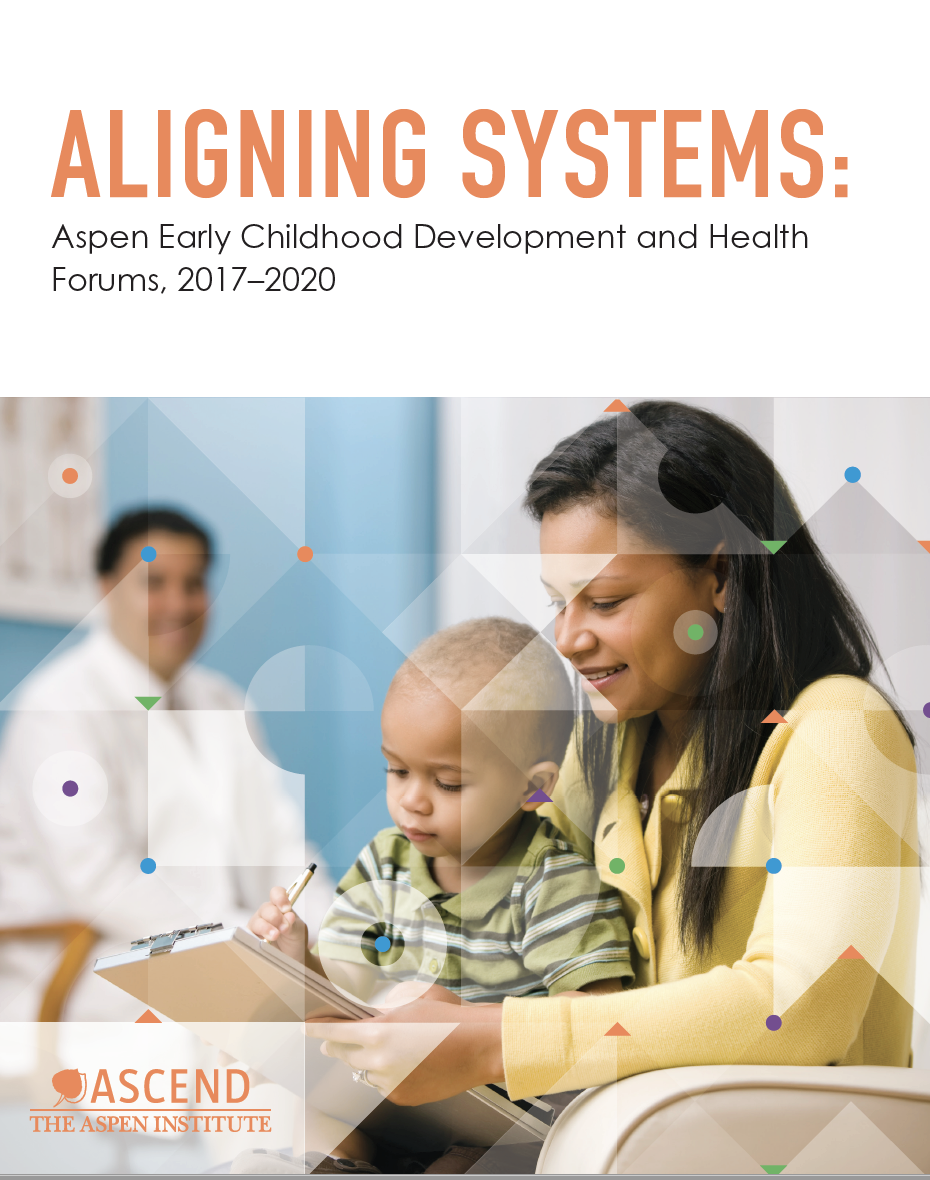
Aligning Systems: Aspen Early Childhood Development and Health Forums, 2017-2020
Read More
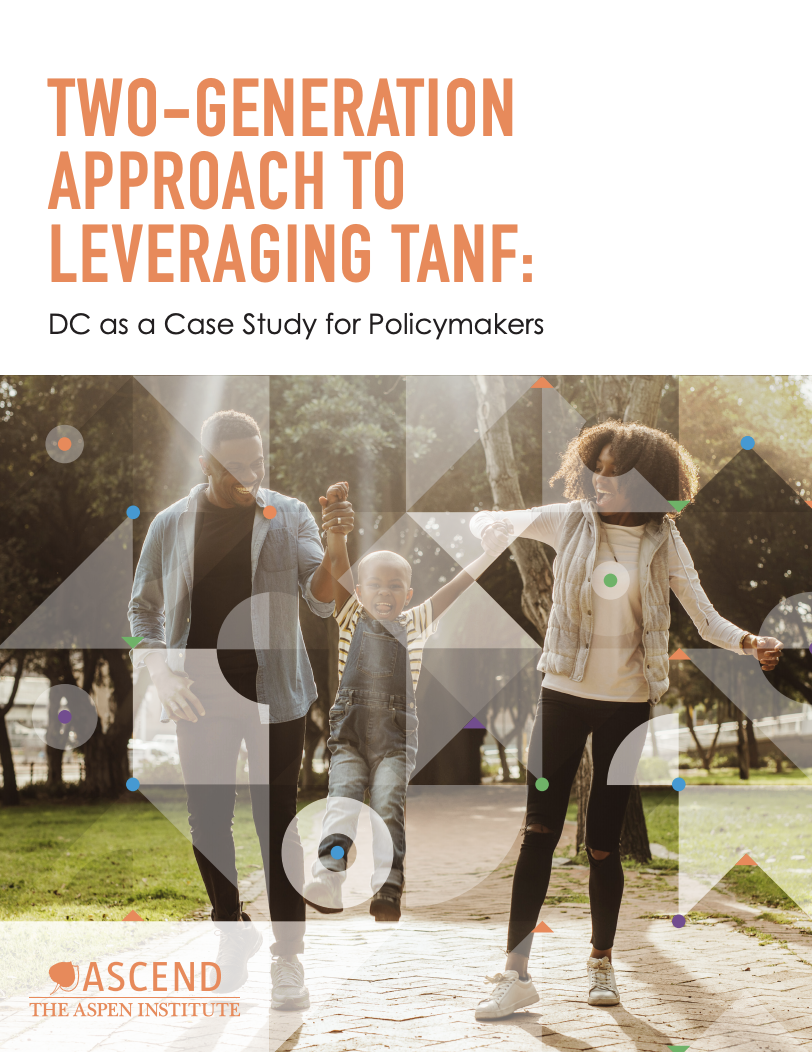
Two-Generation Approach to Leveraging TANF: DC as a Case Study for Policymakers
Read More
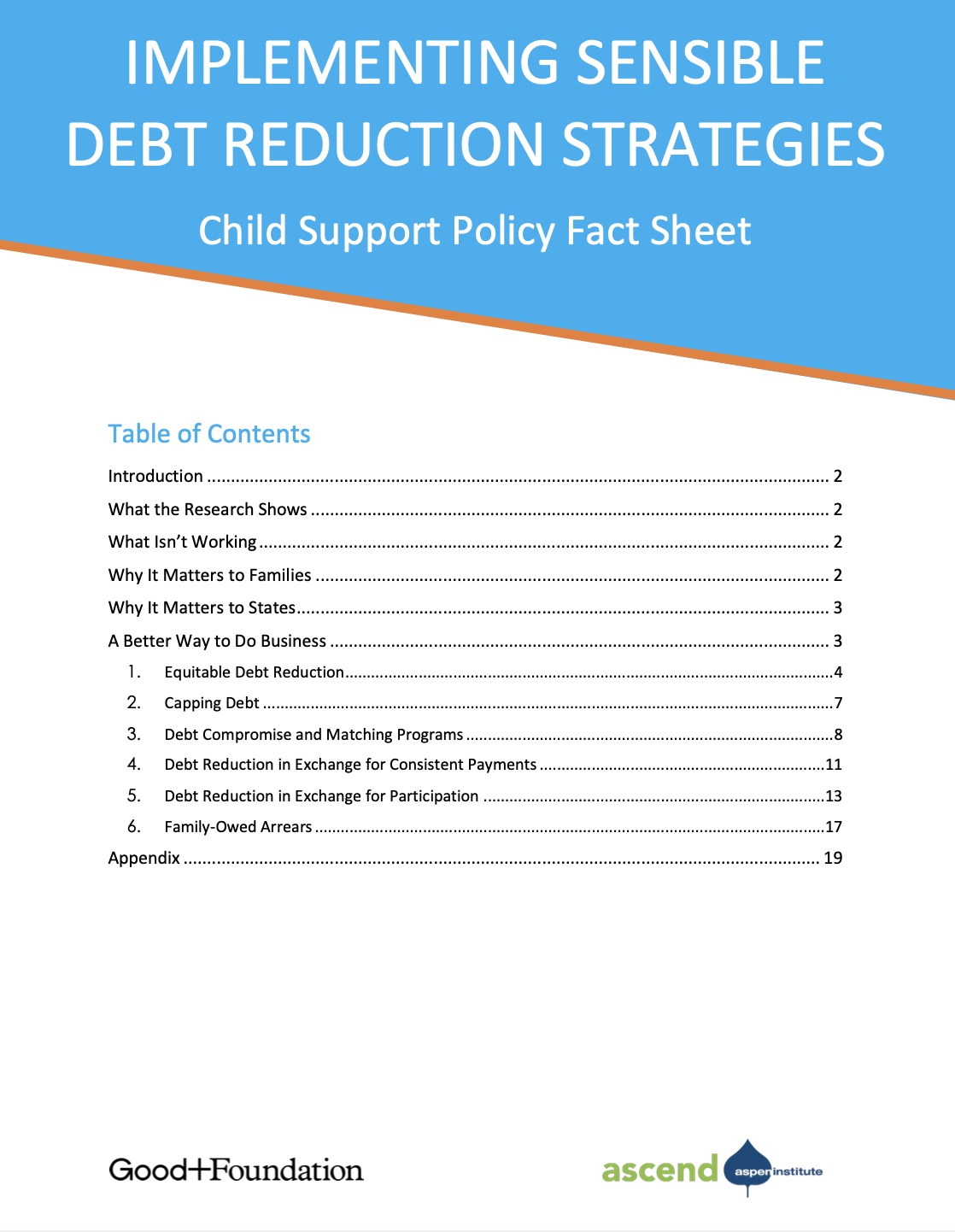
Implementing Sensible Debt Reduction Strategies
Read More
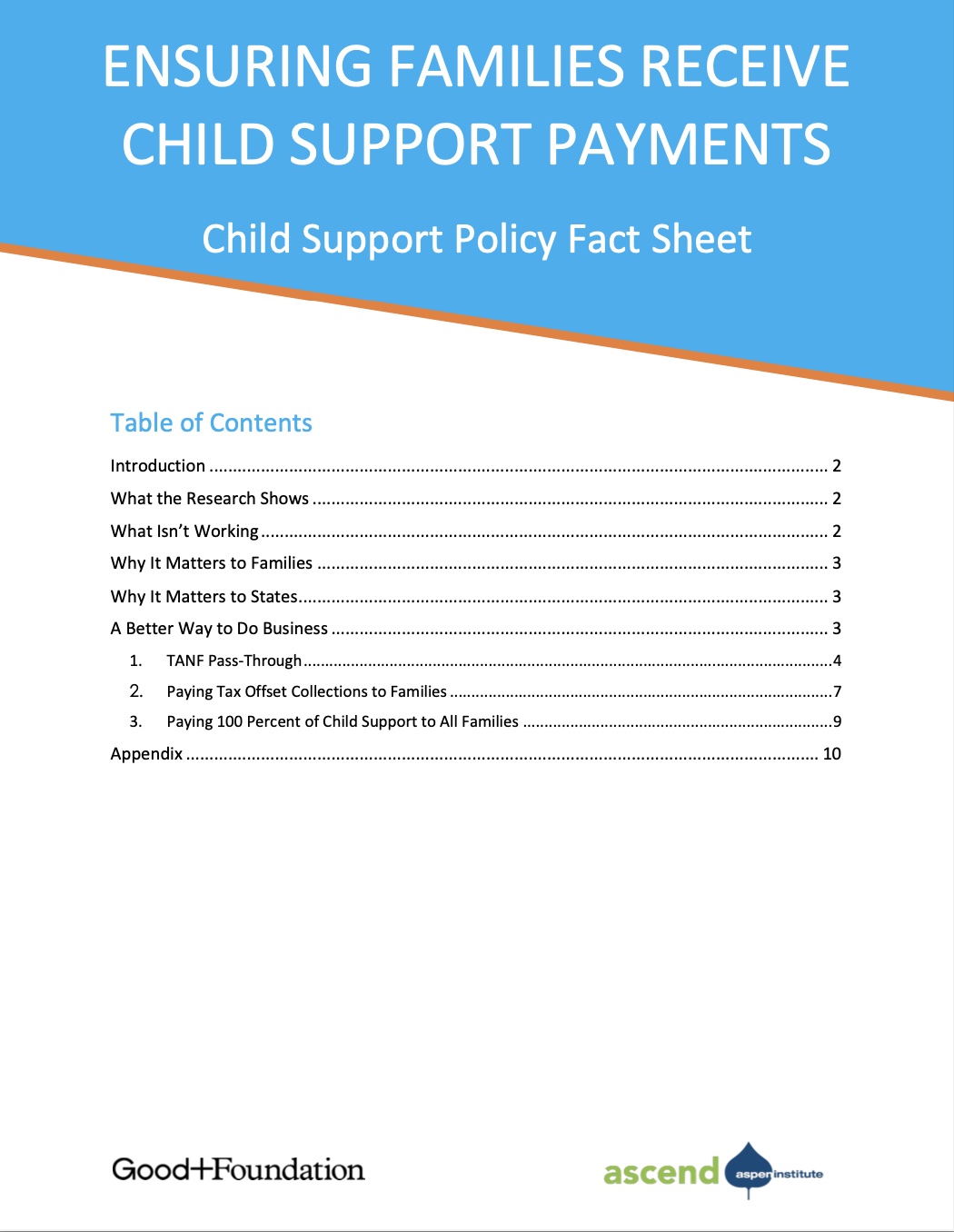
Ensuring Families Receive All Child Support Payments
Read More
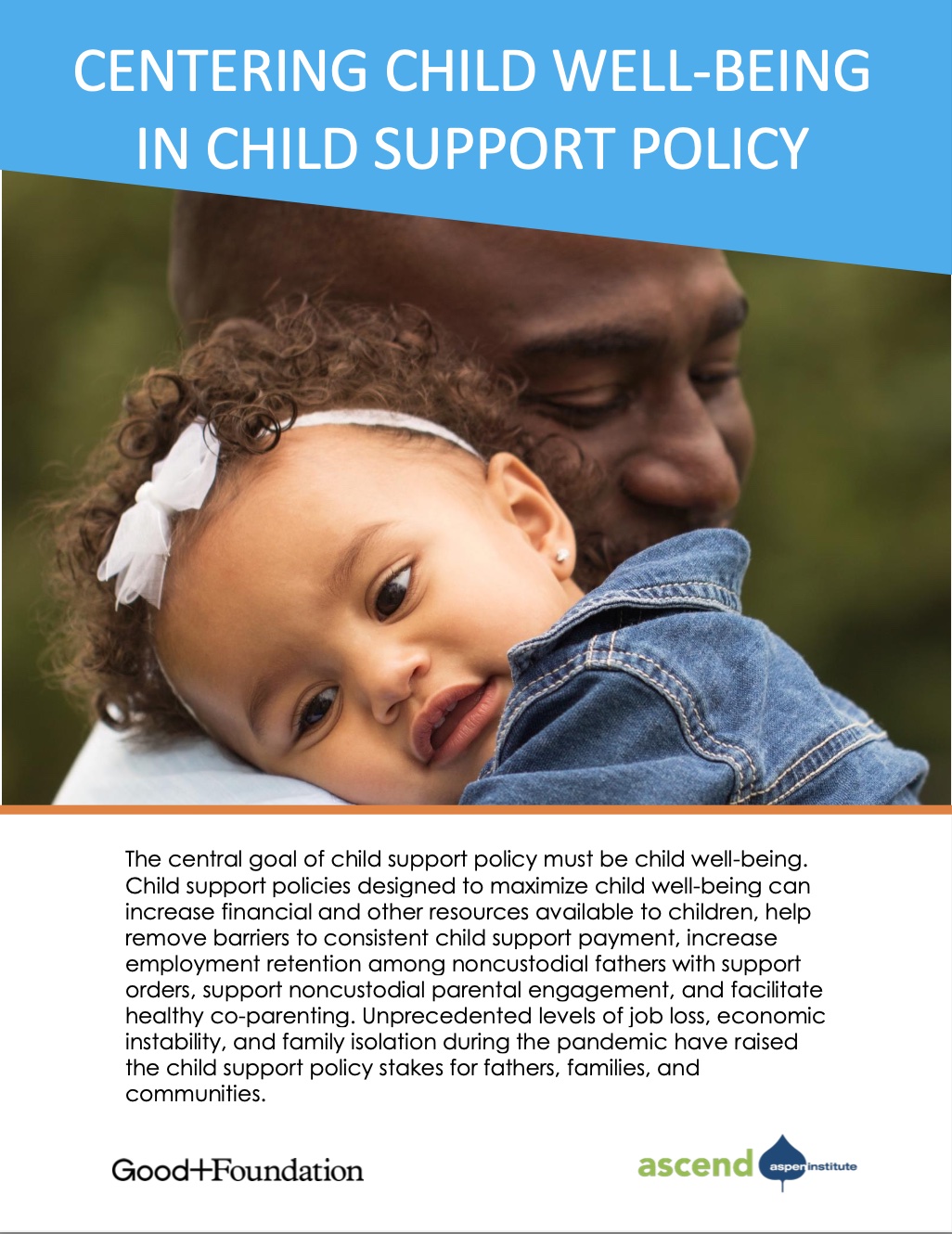
Centering Child Well-Being in Child Support Policy
Read More
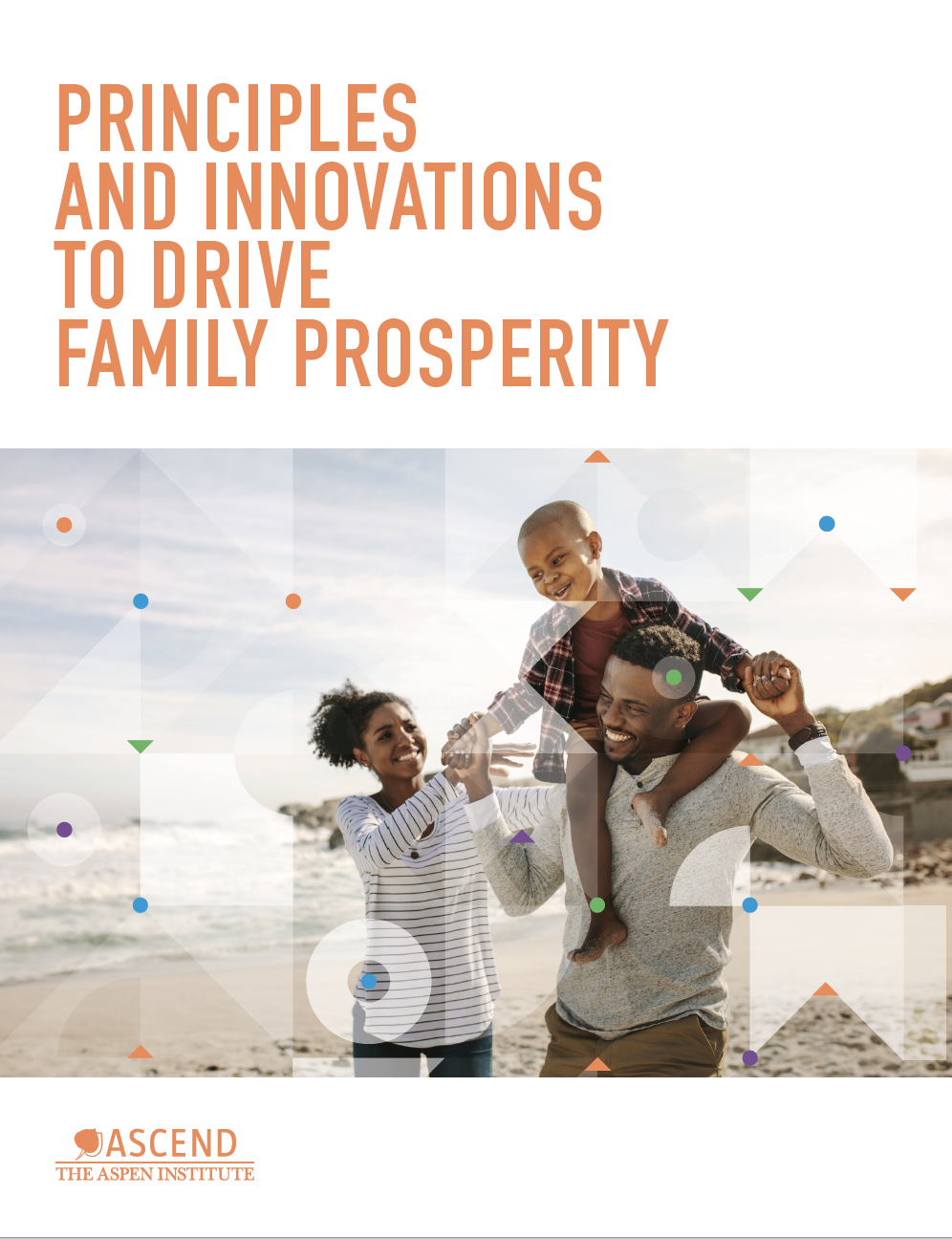
Principles and Innovations to Drive Family Prosperity
Read More
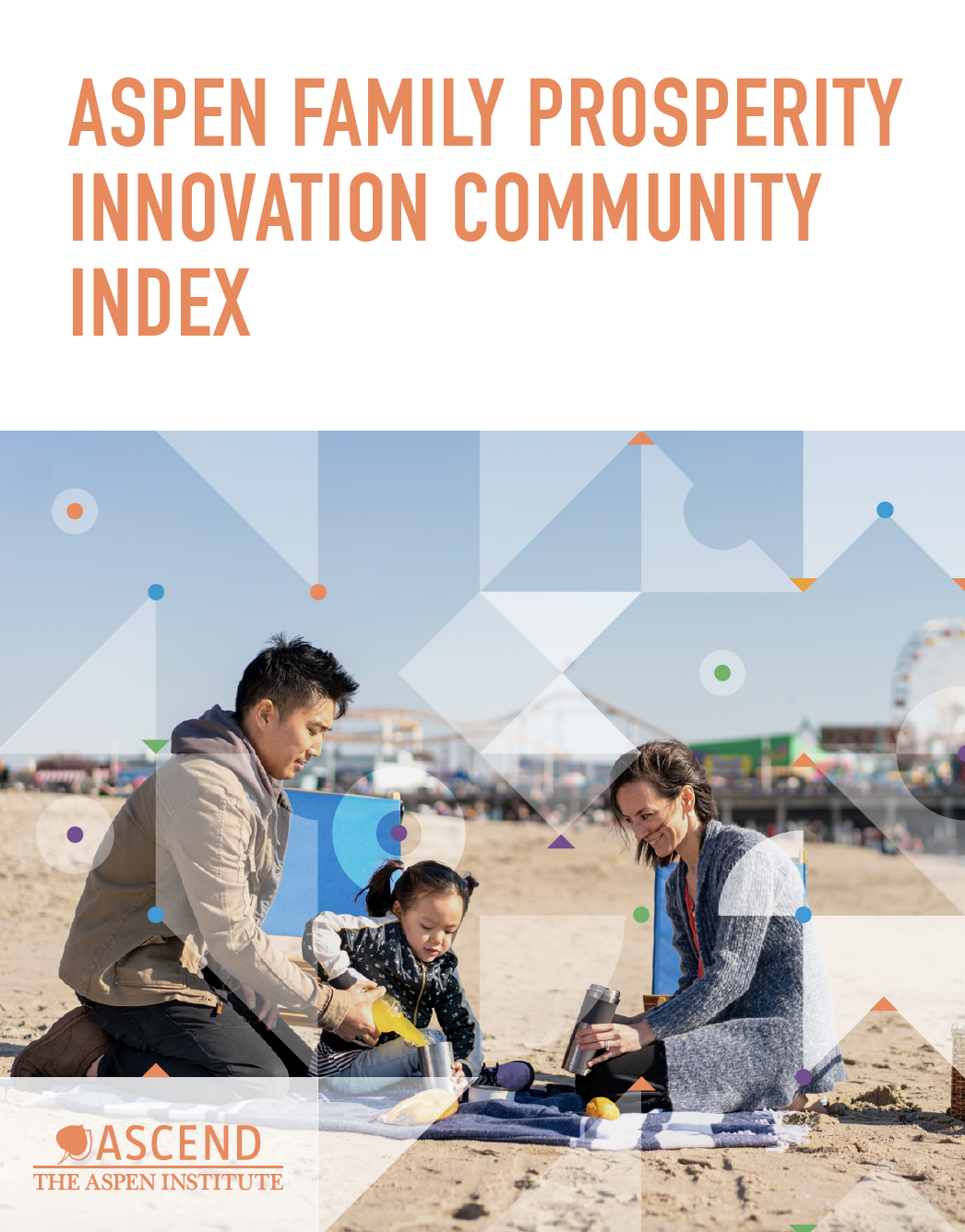
Family Prosperity Innovation Community Index
Read More
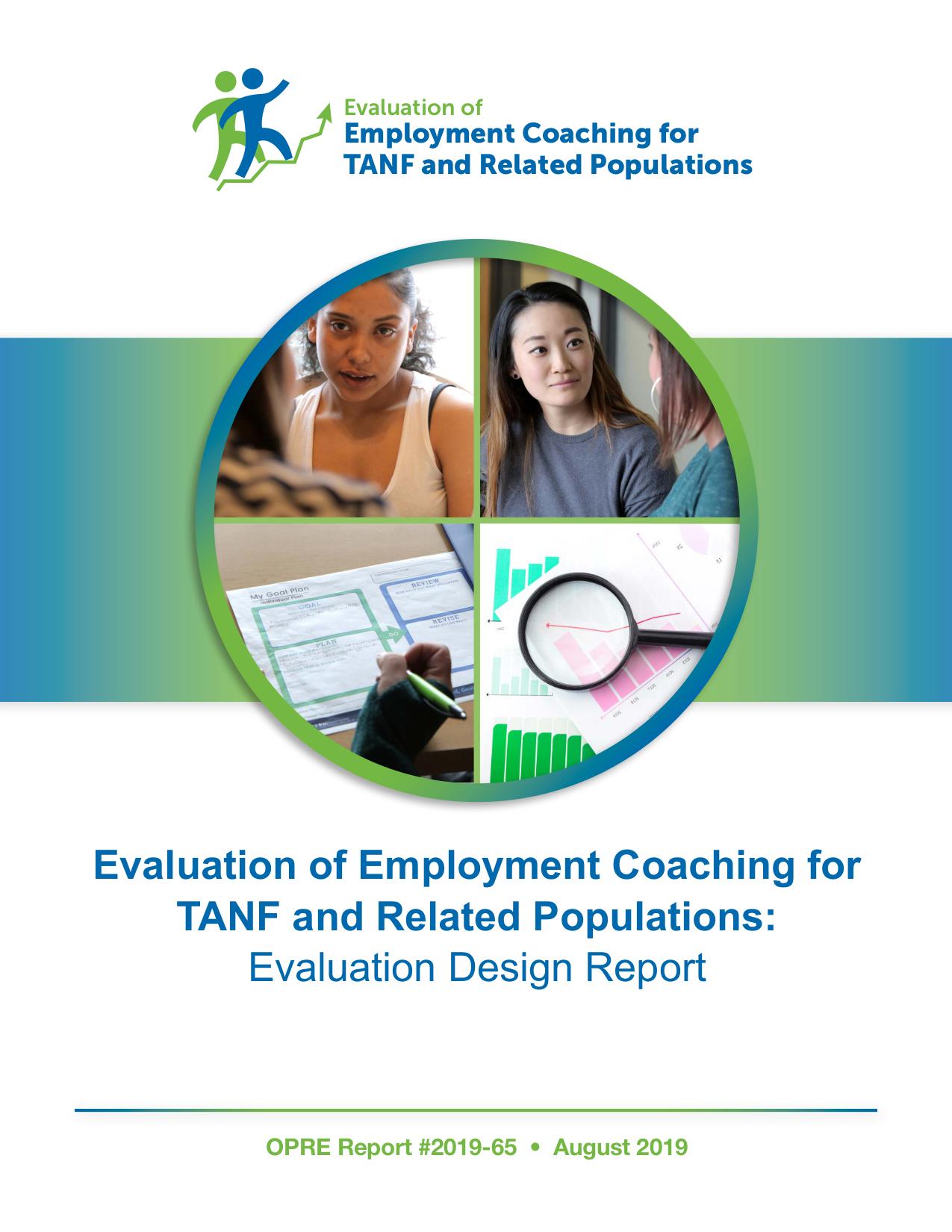
Evaluation of Employment Coaching for TANF and Related Populations: Evaulation Design Report
Read More
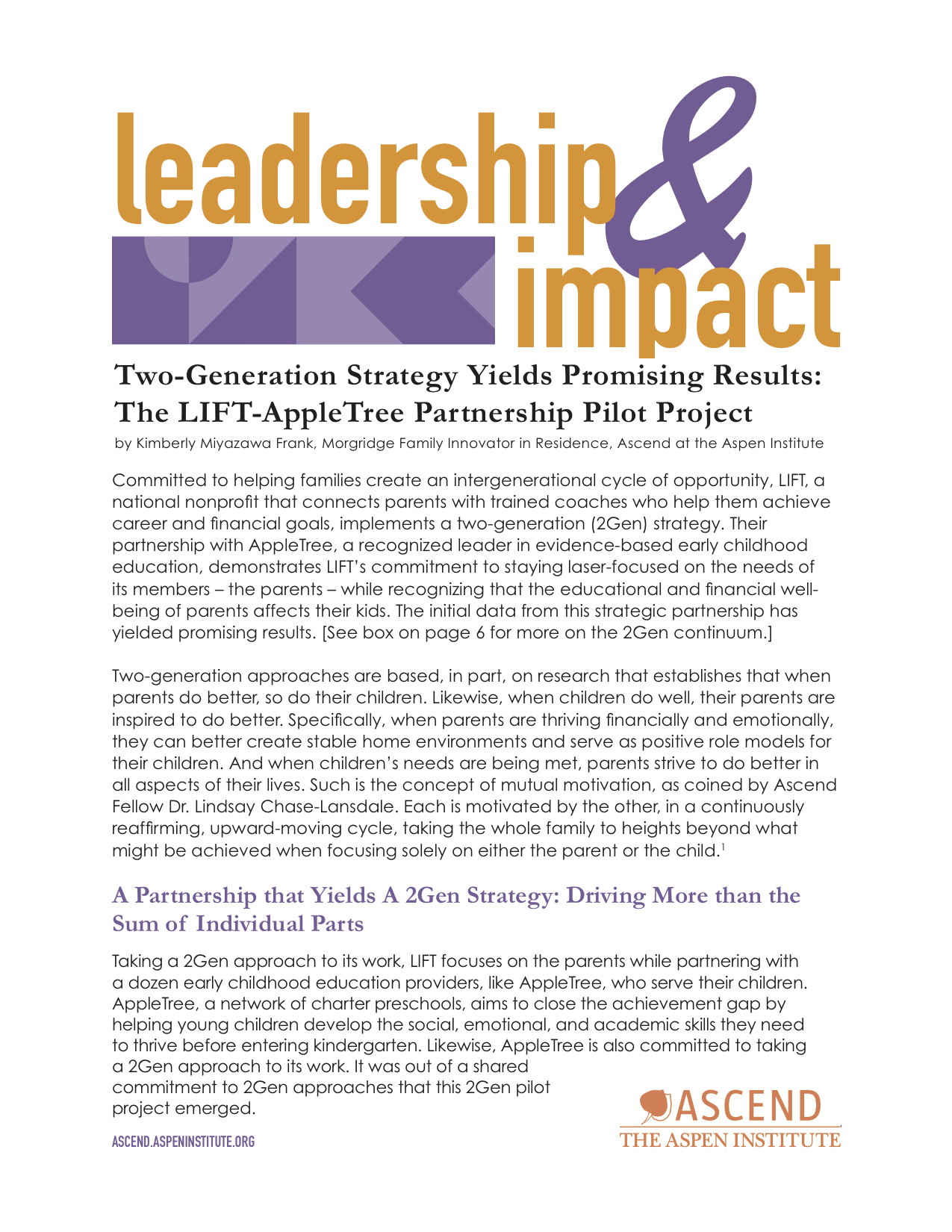
Two-Generation Strategy Yields Promising Results: The LIFT-AppleTree Partnership Pilot Project
Read More
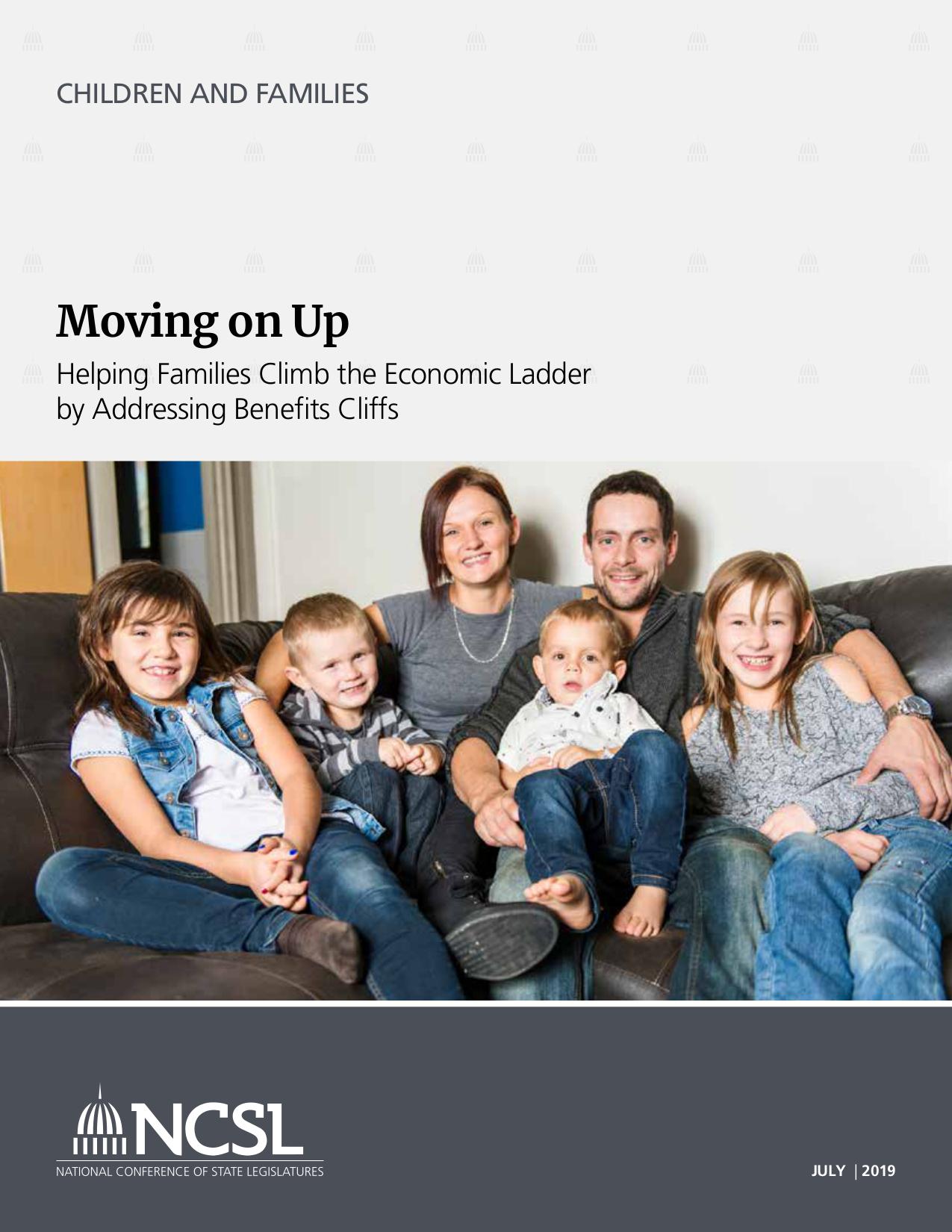
Moving on Up: Helping Families Climb the Economic Ladder by Addressing Benefits Cliffs
Read More
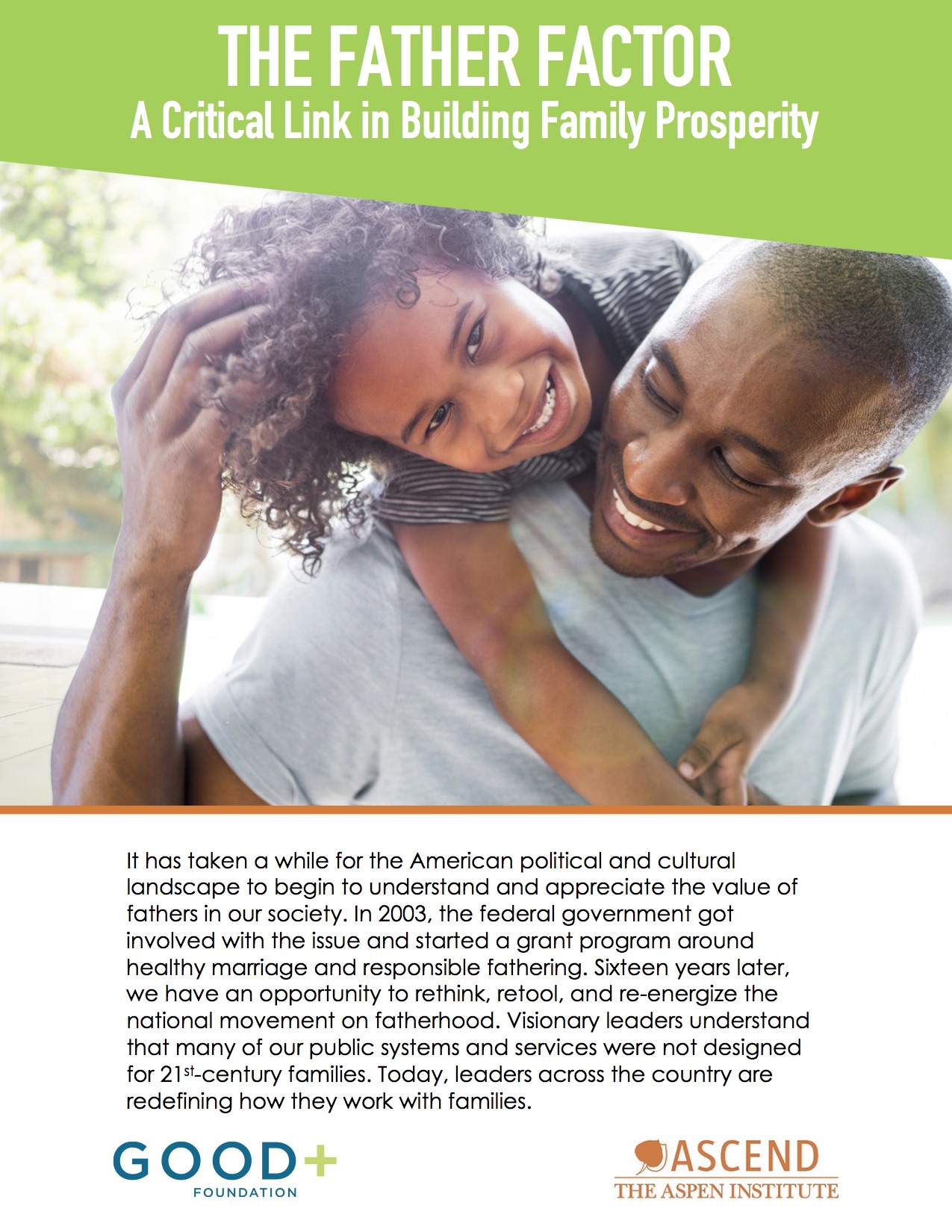
The Father Factor: A Critical Link In Building Family Prosperity
Read More
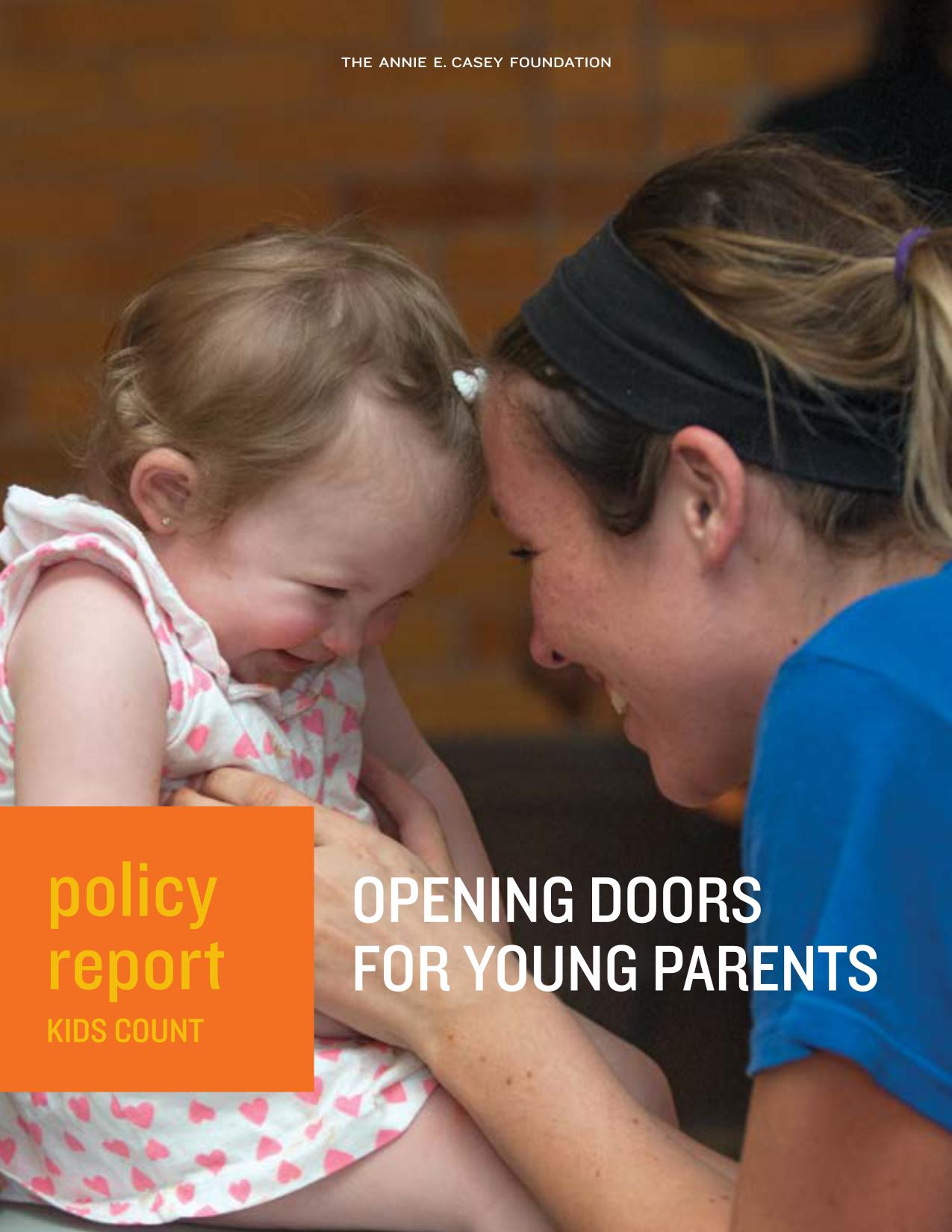
Opening Doors for Young Parents: Kids Count Policy Report
Read More
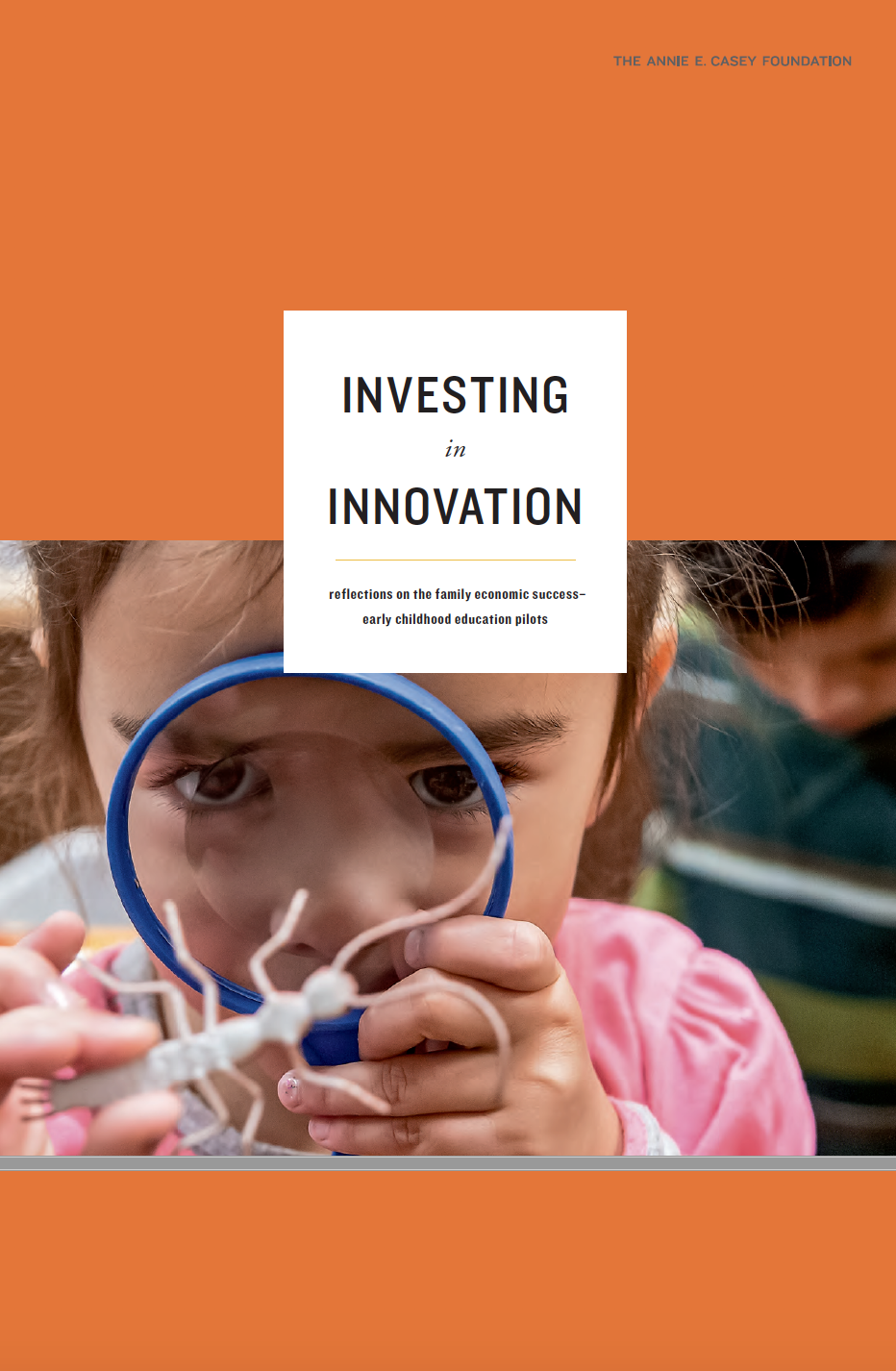
Investing in Innovation: Reflections on the Family Economic Success-Early Childhood Education Pilots
Read More
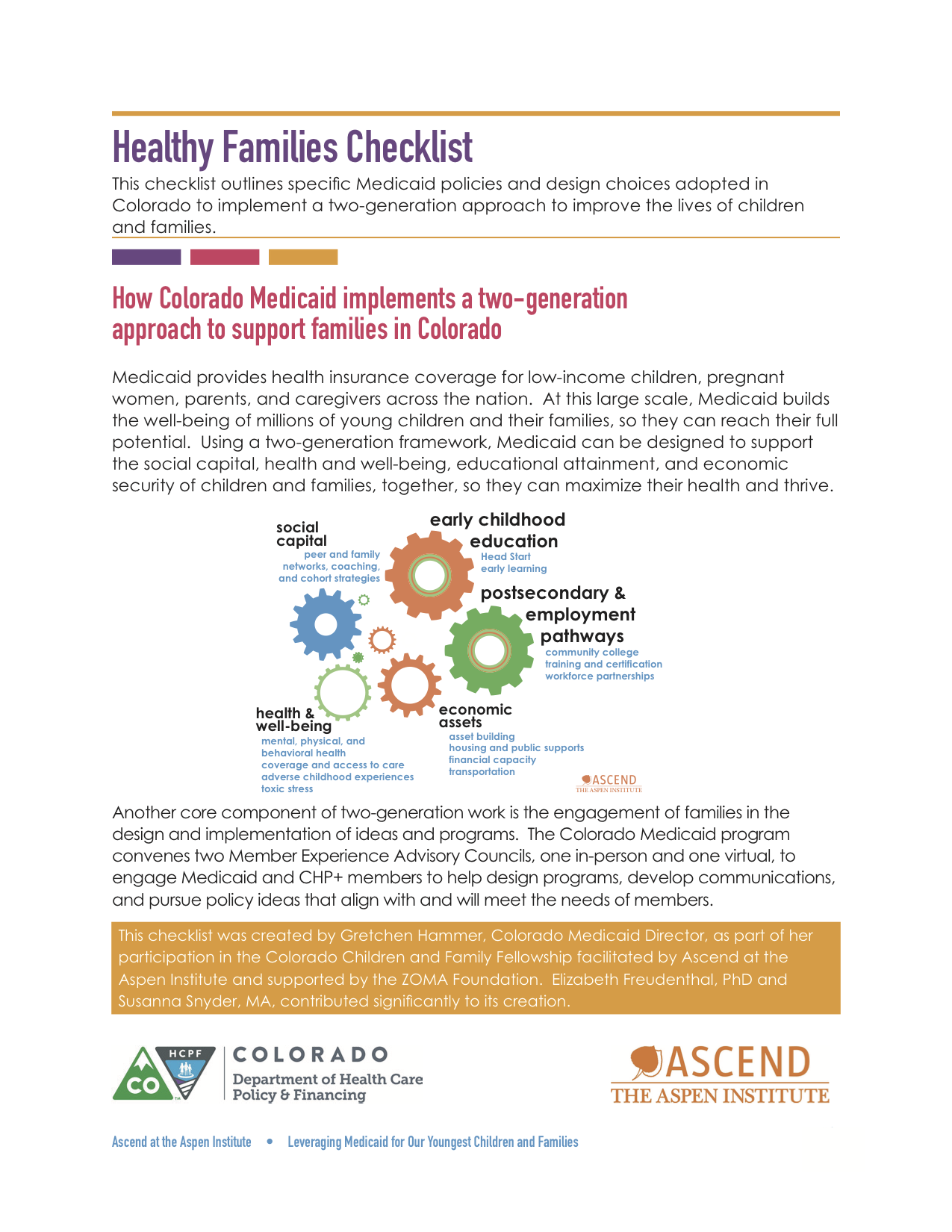
Healthy Families Checklist: Leveraging Medicaid for Our Youngest Children and Families
Read More
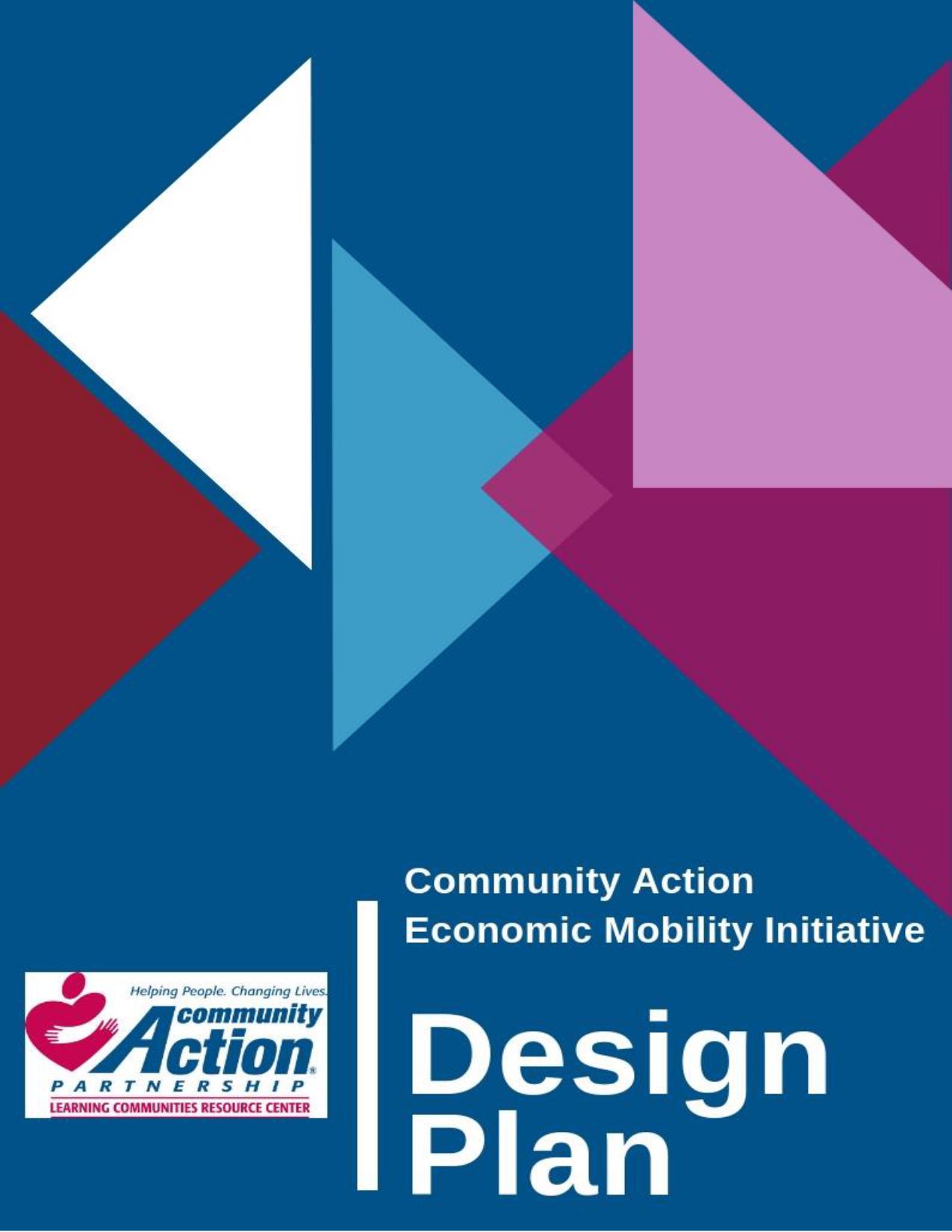
Community Action Economic Mobility Initative Design Plan
Read More
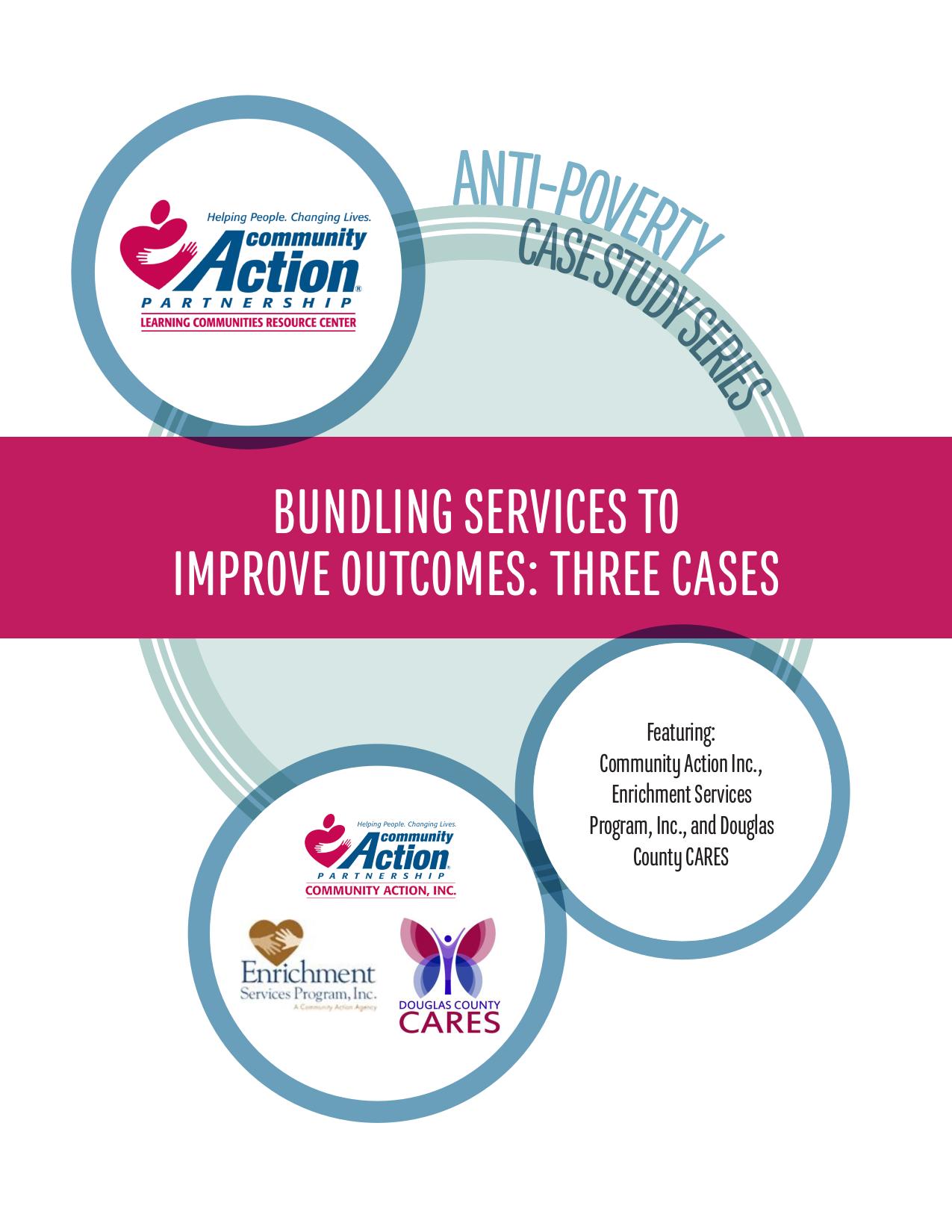
Bundling Services to Improve Outcomes: Three Cases
Read More
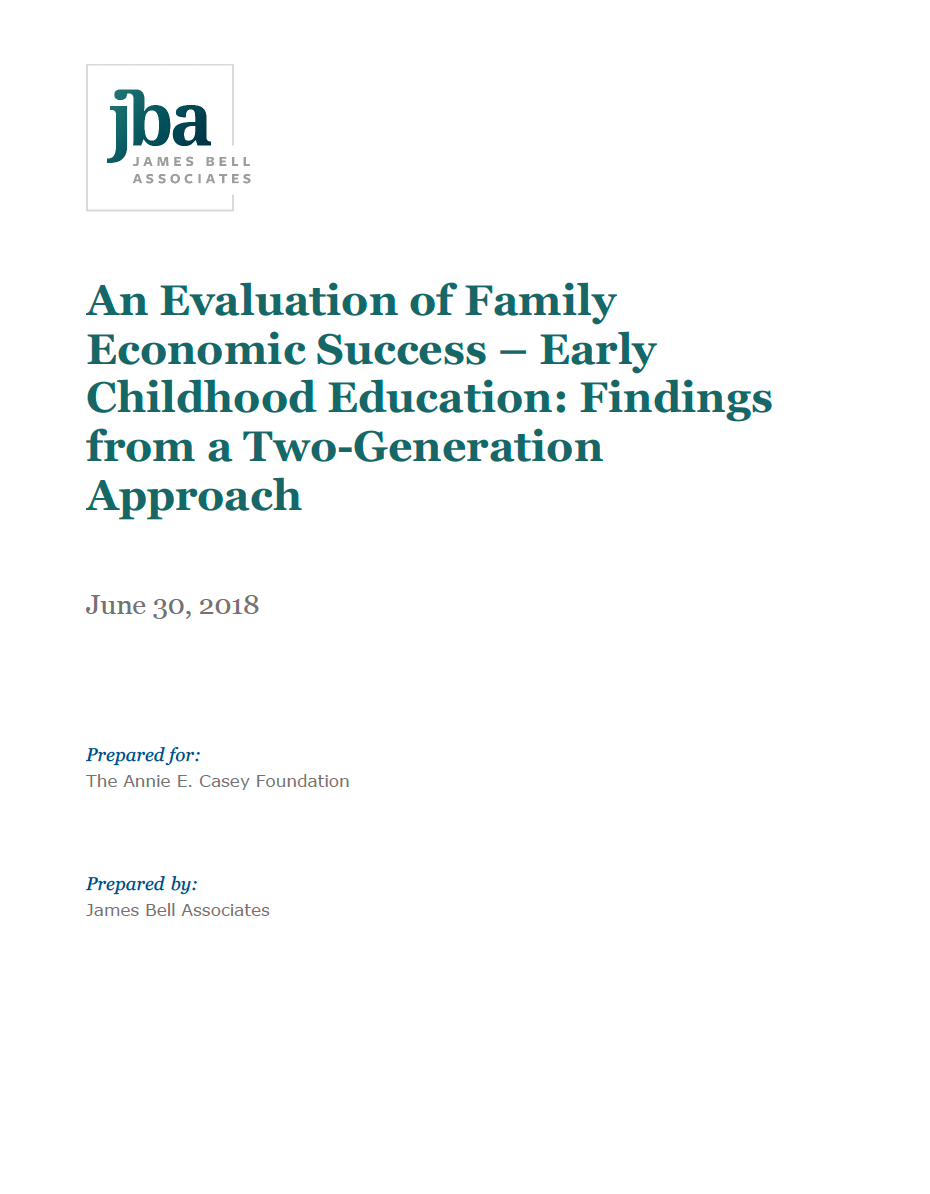
An Evaluation of Family Economic Success – Early Childhood Education: Findings from a Two-Generation Approach
Read More
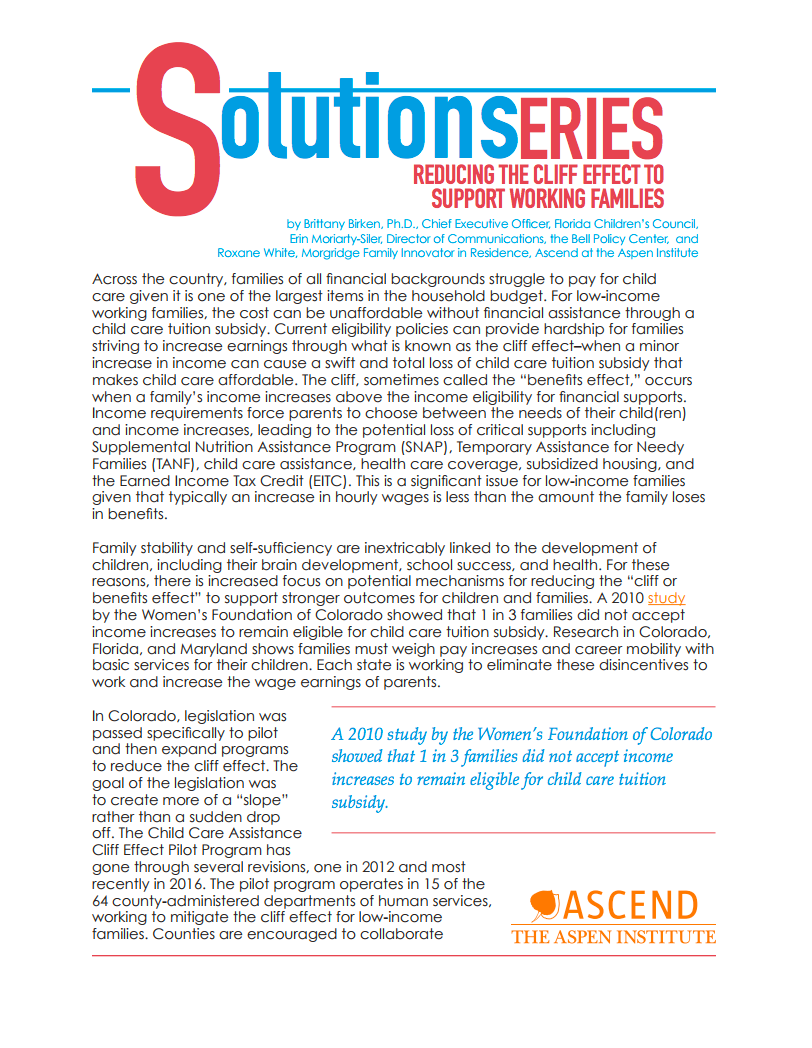
Reducing the Cliff Effect to Support Working Families
Read More
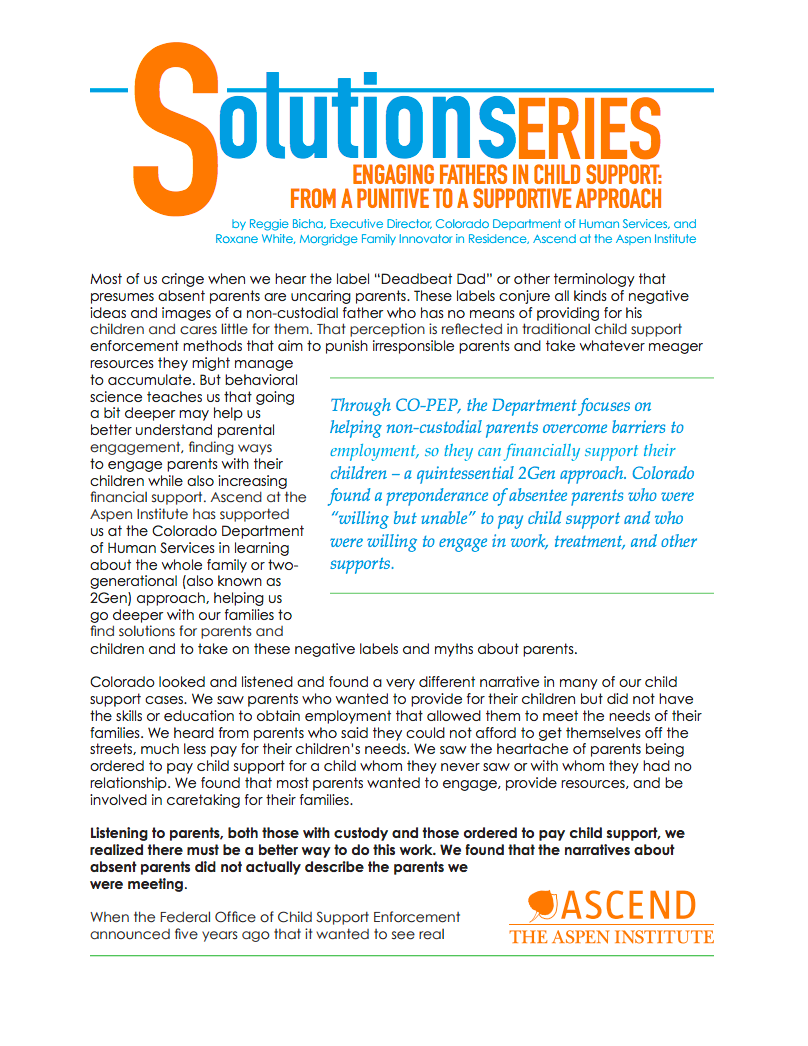
Engaging Fathers in Child Support: From a Punitive to a Supportive Approach
Read More
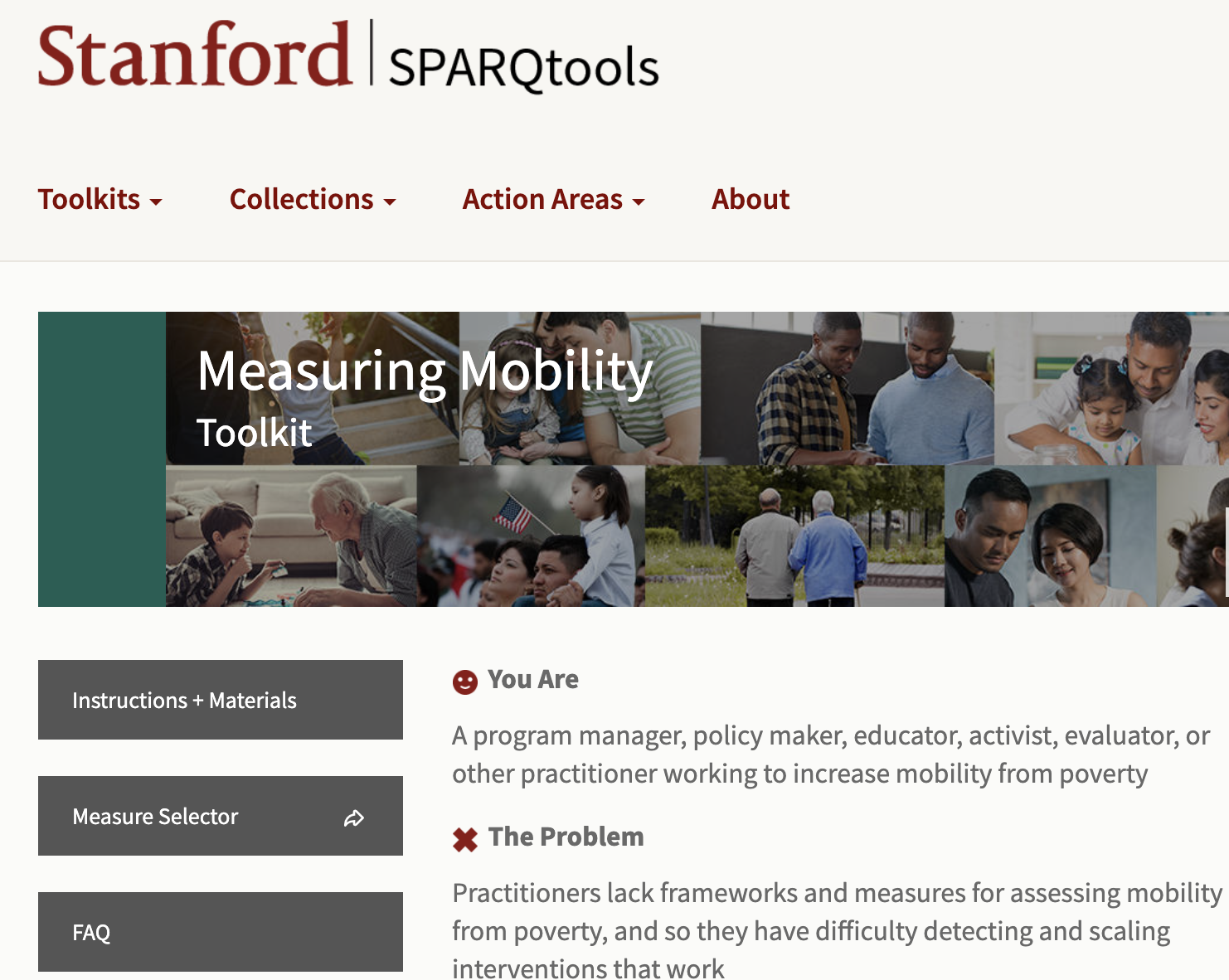
Measuring Mobility Toolkit
Read More
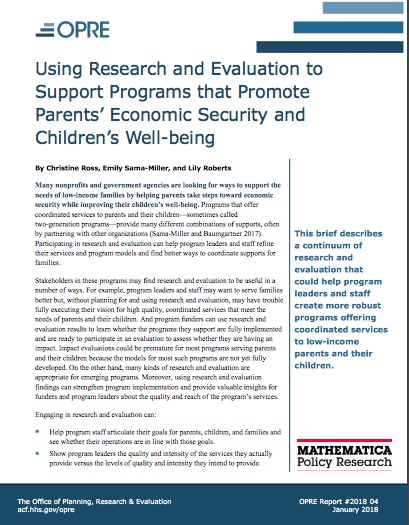
Using Research and Evaluation to Support Programs that Promote Parents’ Economic Security and Children’s Well-being
Read More

Becoming Visible: Race, Economic Security, and Political Voice in Jackson, MS
Read More
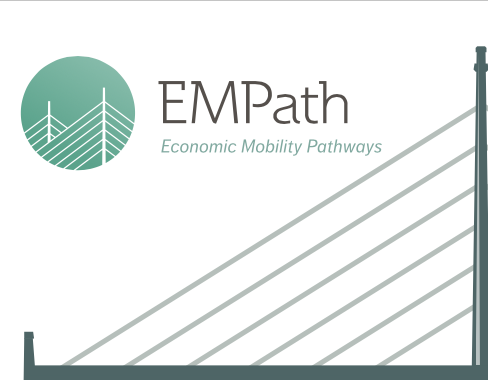
EMPath Bridge to Self Sufficiency
Read More
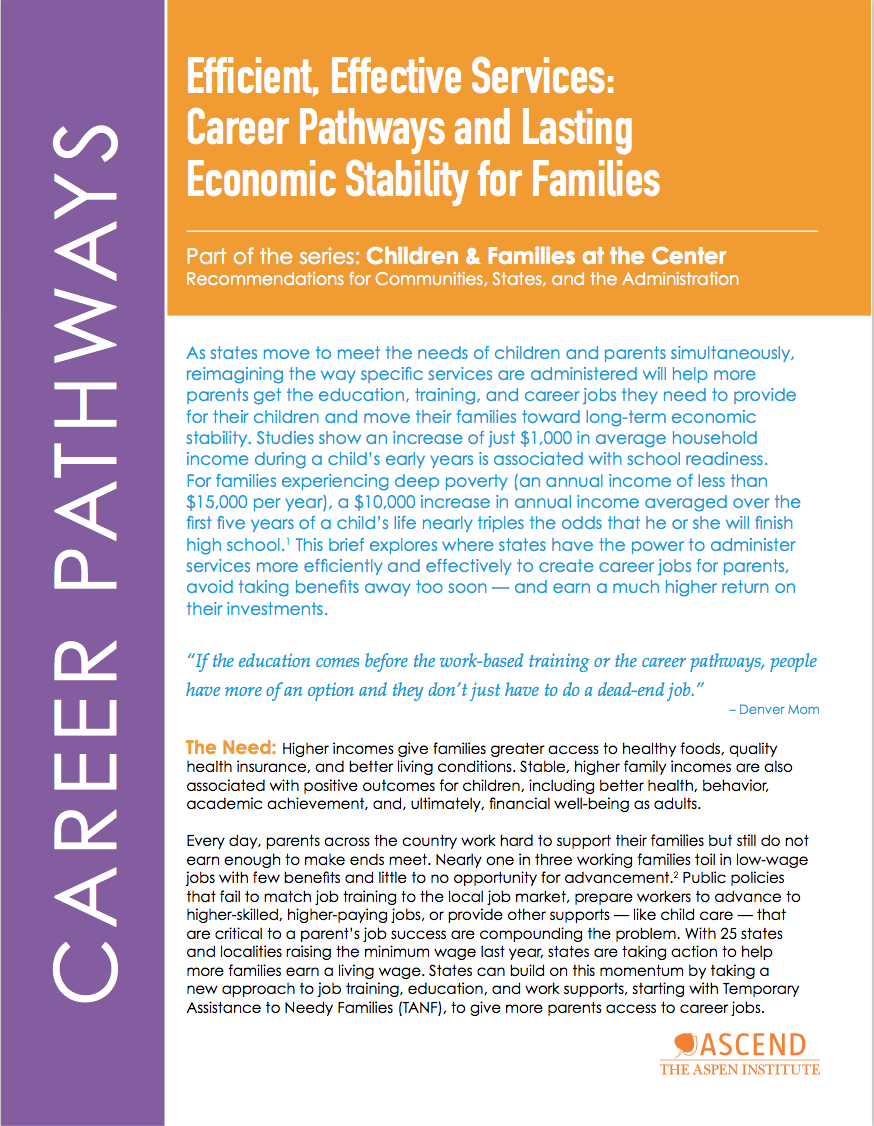
Efficient, Effective Services: Career Pathways and Lasting Economic Stability for Families
Read More
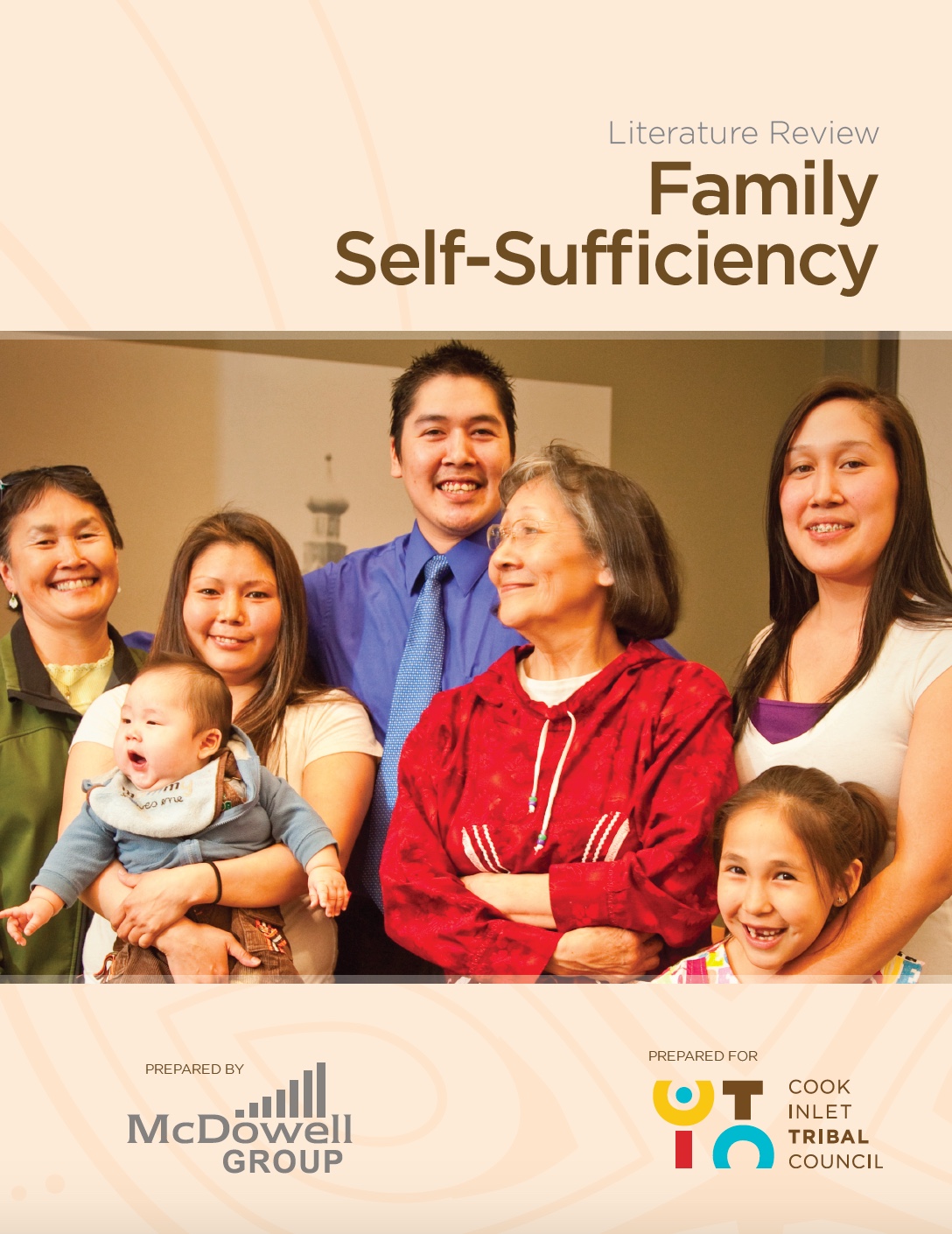
Literature Review: Family Self-Sufficiency
Read More
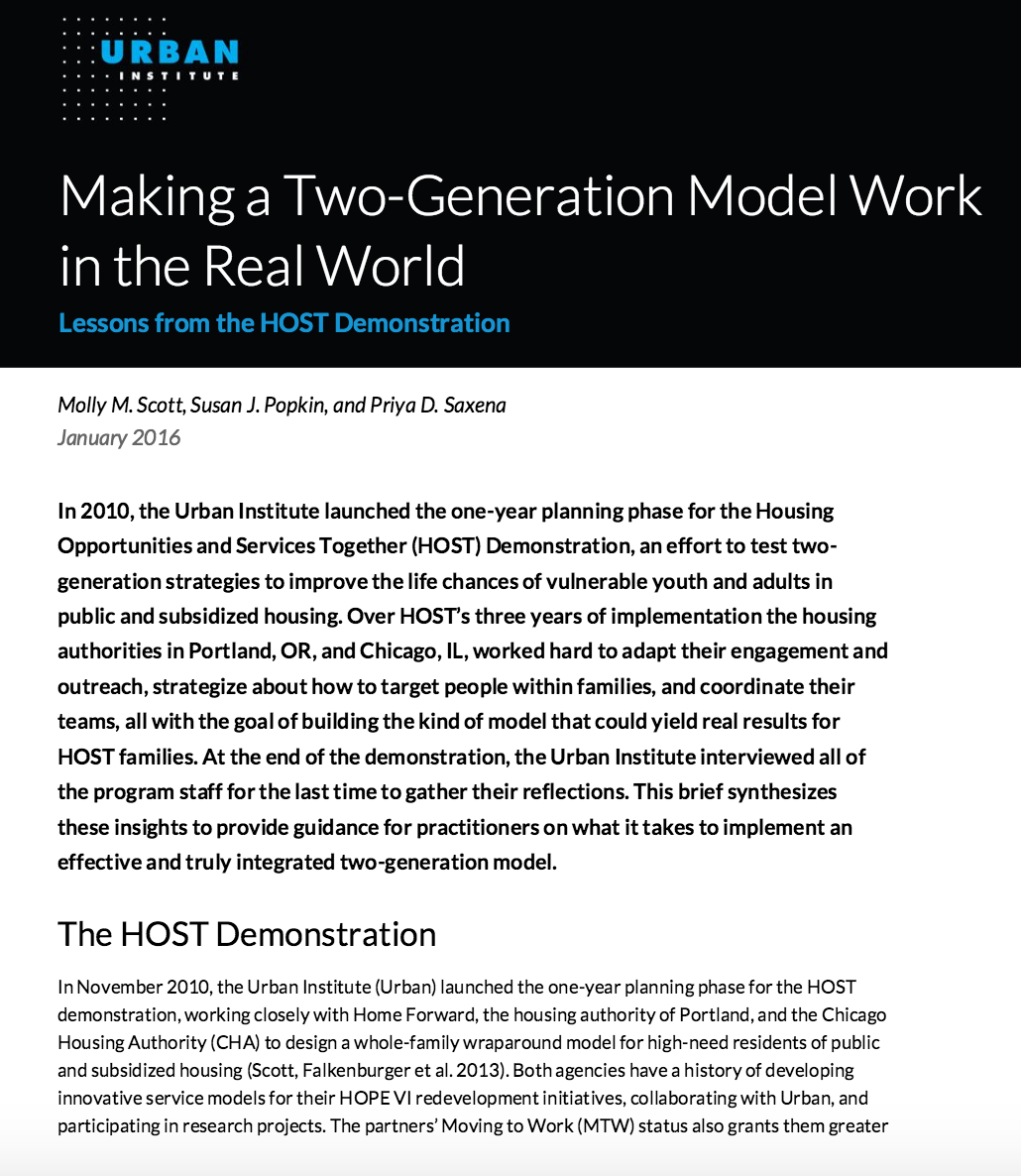
Making a Two-Generation Model Work in the Real World Lessons from the HOST Demonstration
Read More
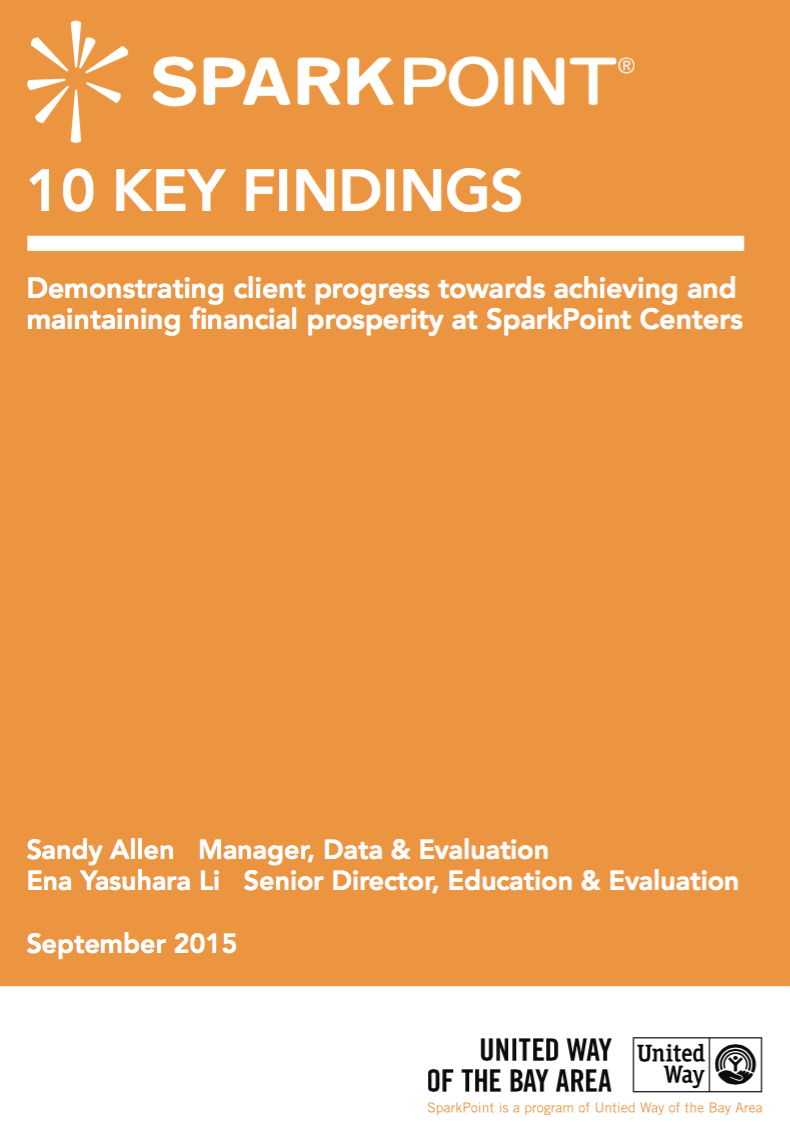
SparkPoint’s 10 Key Findings: Demonstrating client progress towards financial prosperity
Read More

Coaching for Economic Mobility
Read More
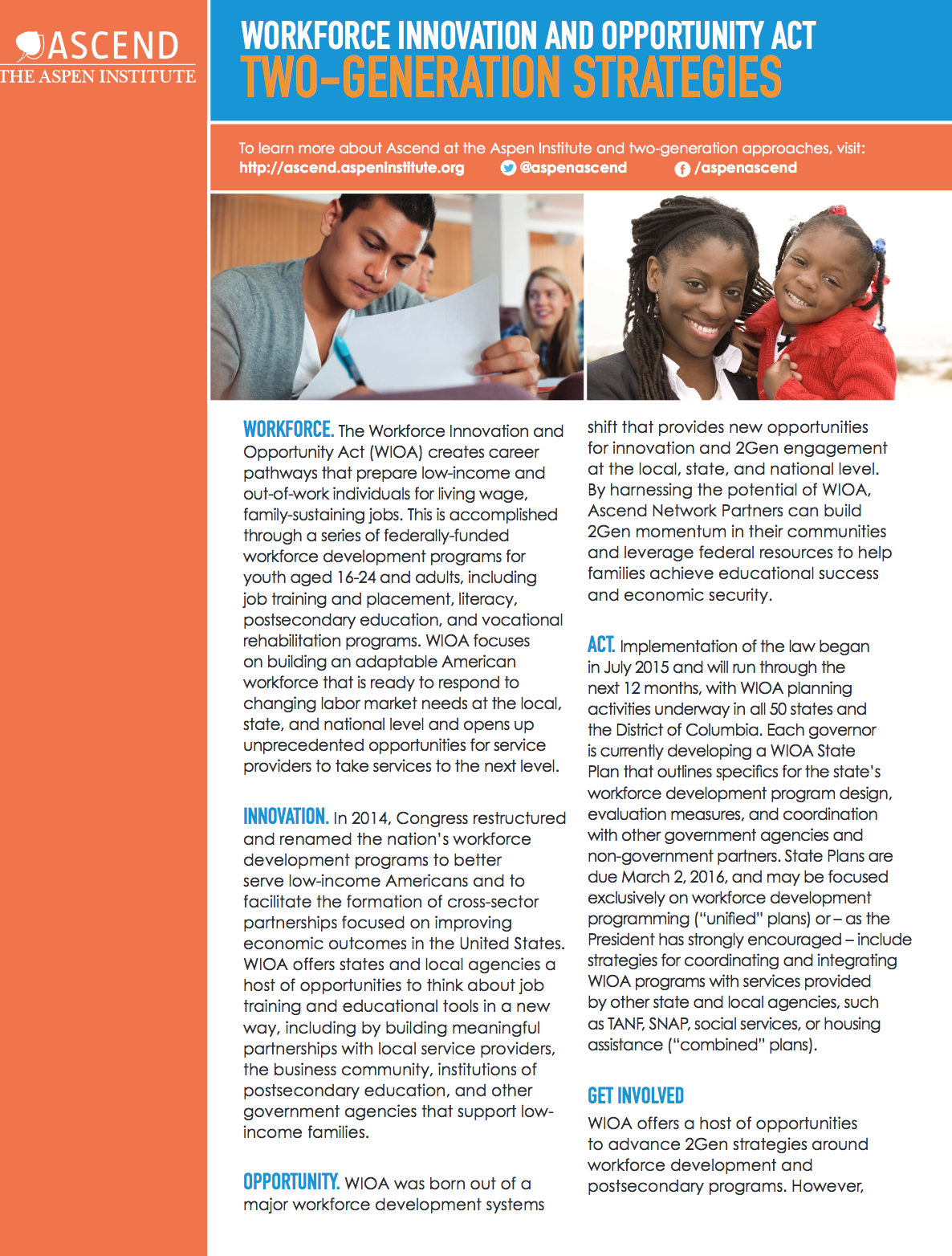
The Workforce Innovation and Opportunity Act and Two-Generation Strategies
Read More

Poverty Interrupted: Applying Behavioral Science to the Context of Chronic Scarcity
Read More
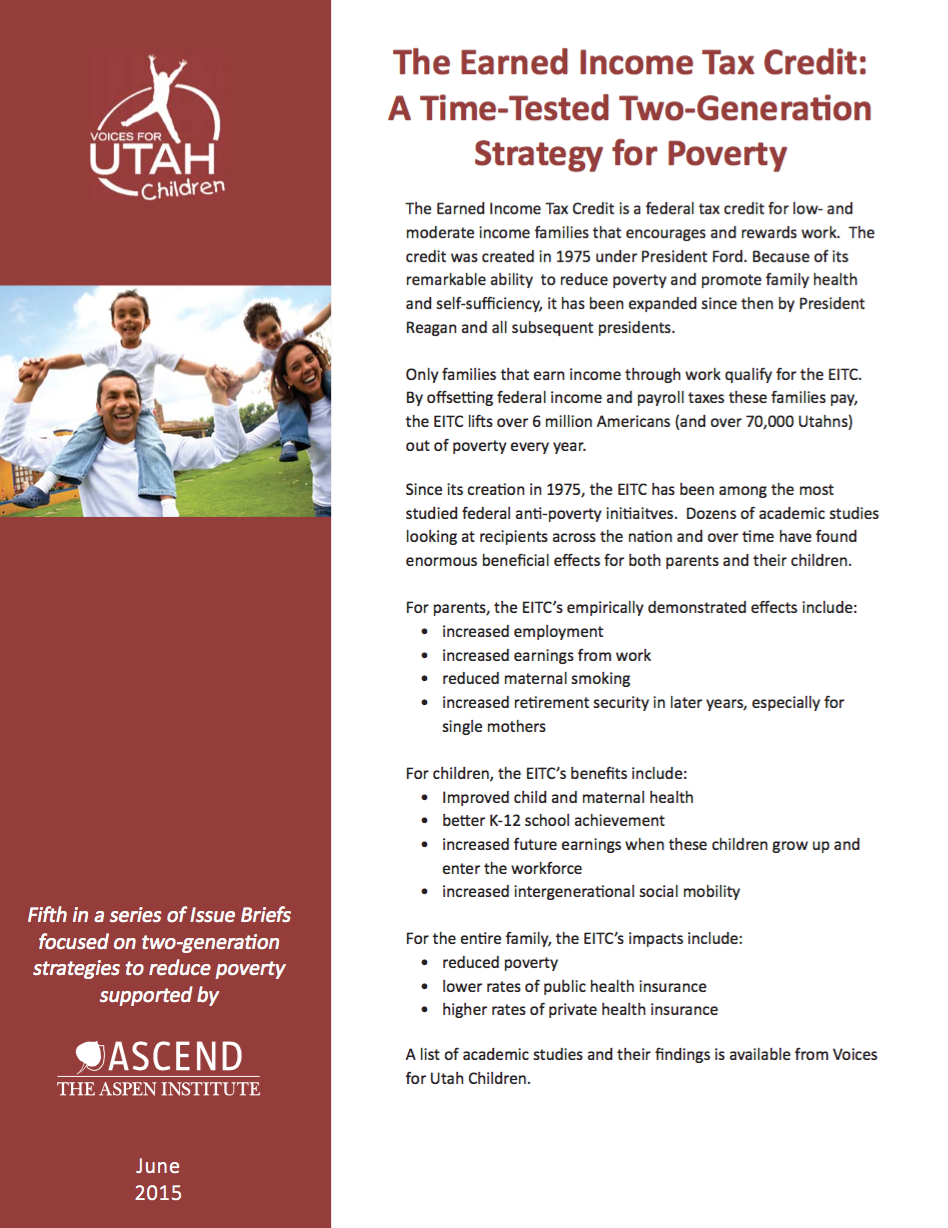
The Earned-Income Tax Credit: A Time-Tested Two-Generation Strategy for Poverty
Read More
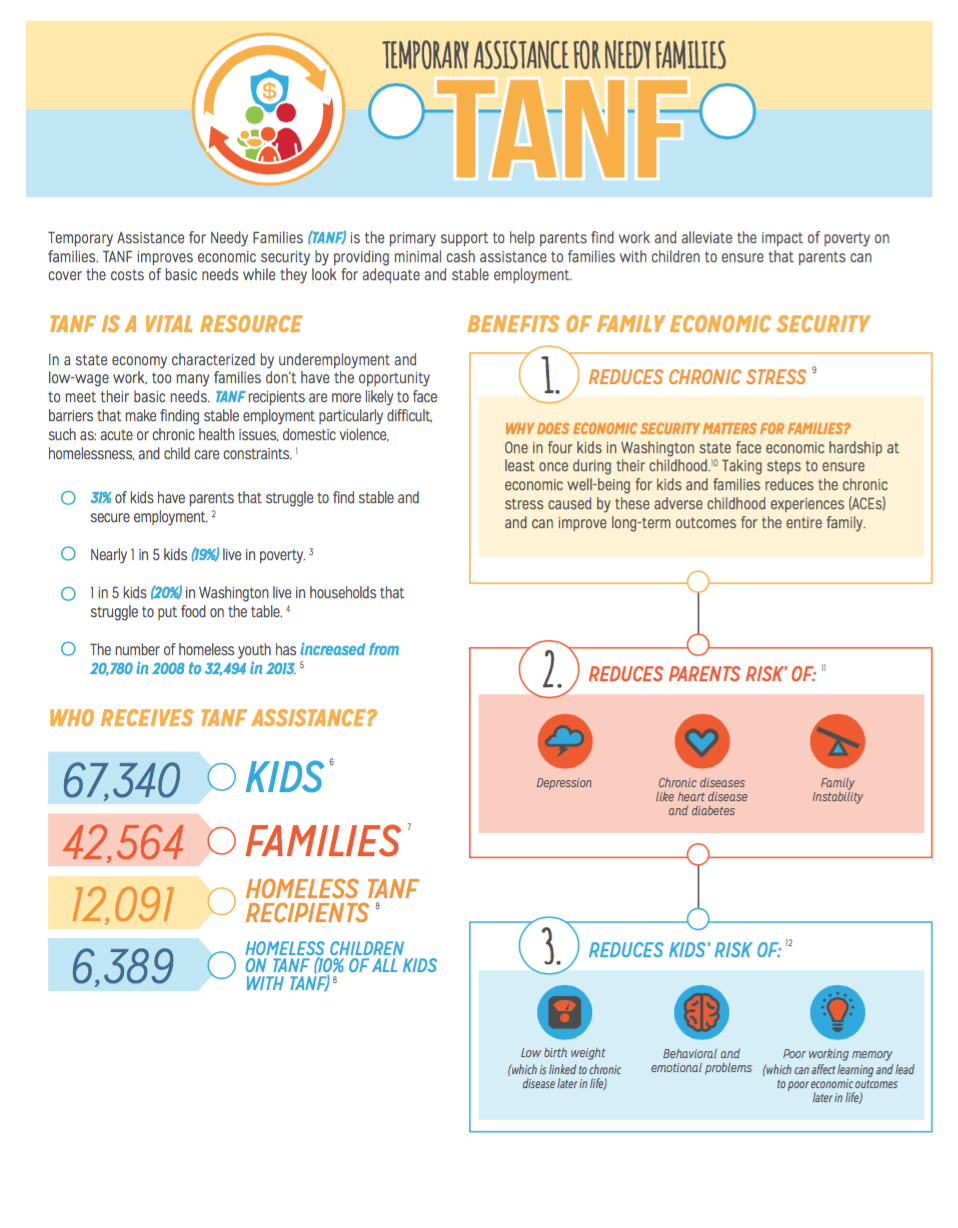
Washington State TANF Fact Sheet
Read More

A Two-Generation Approach for TANF in Washington State
Read More

impactDEALS Forum Sector report: Impact Investing in Education
Read More

impactDEALS Forum Sector report: Impact Investing in Conservation Finance
Read More
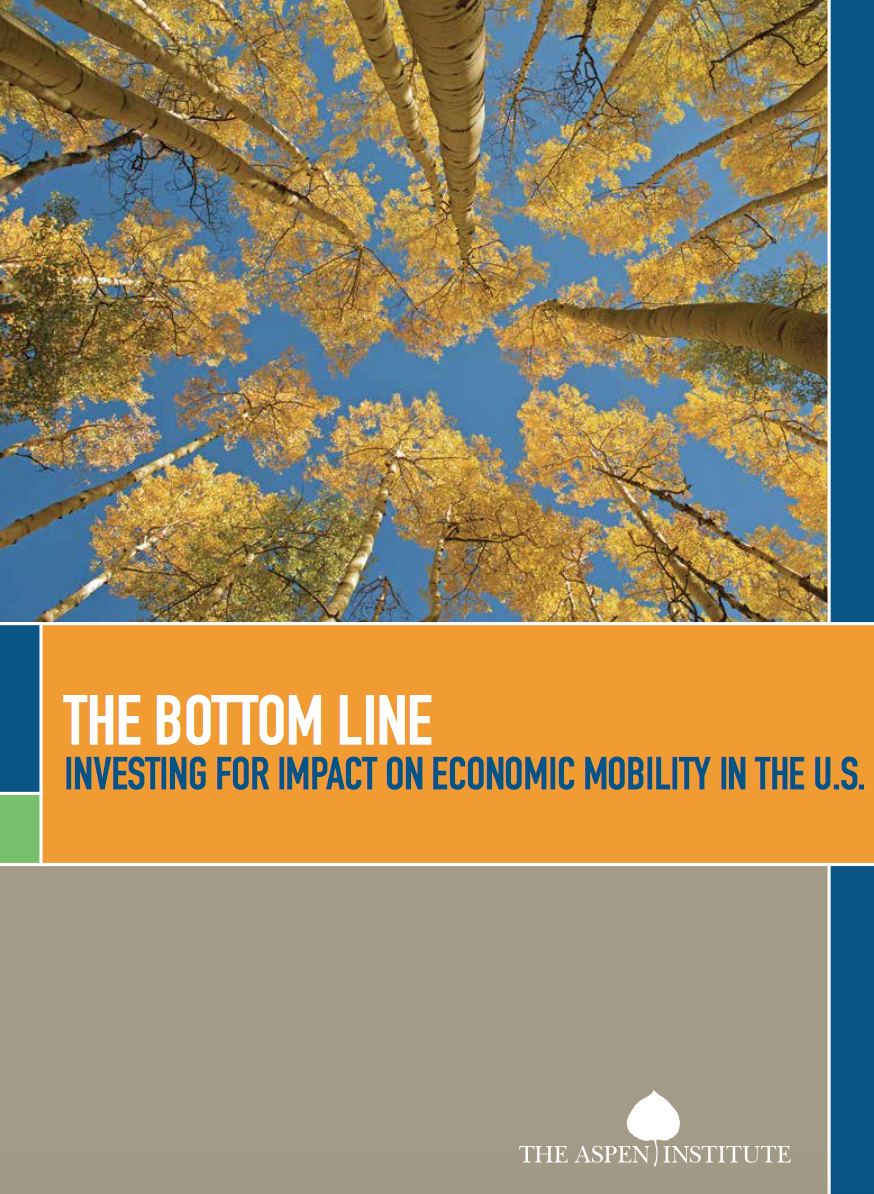
The Bottom Line: Impact Investing for Economic Mobility in the U.S.
Read More
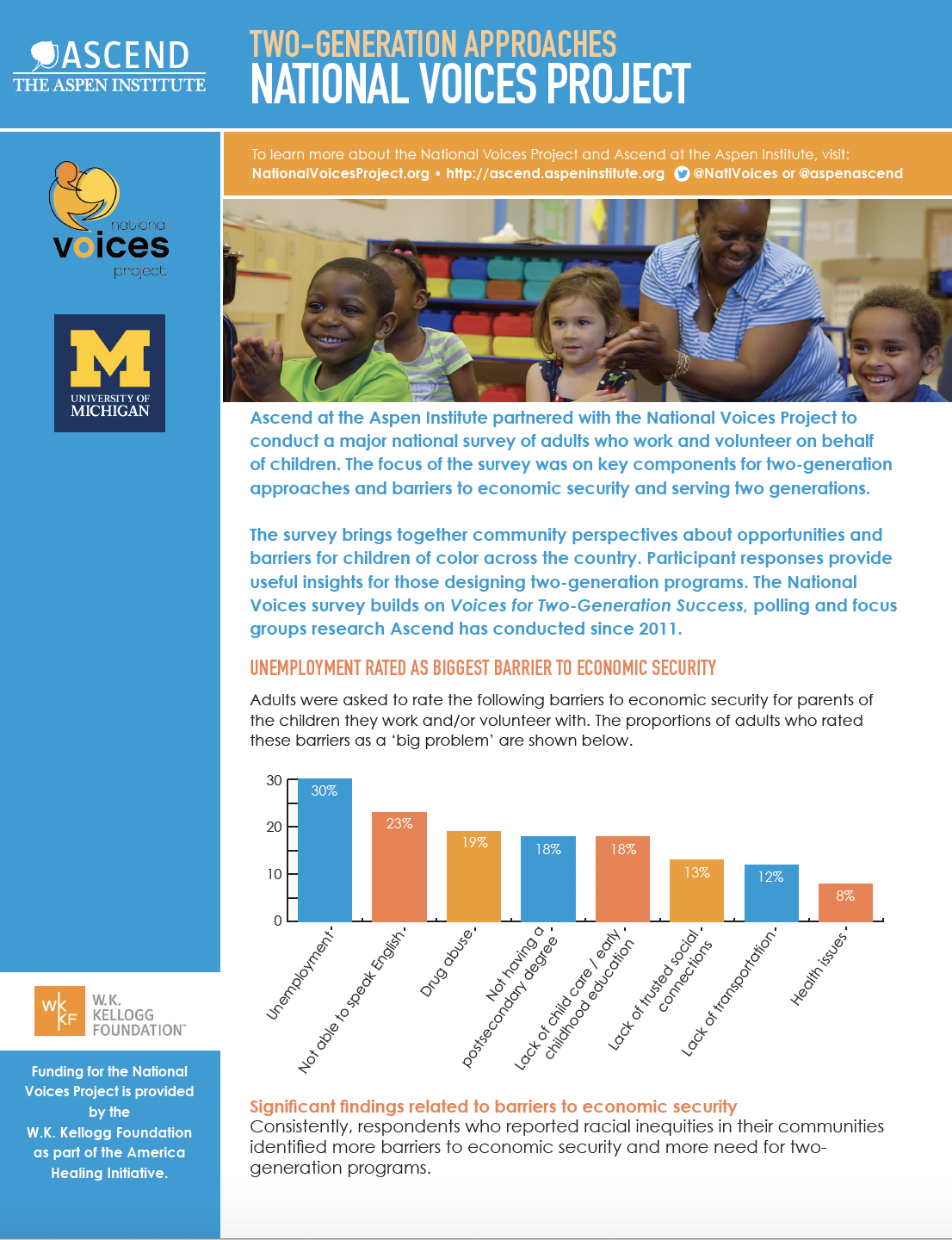
Two-Generation Approaches, National Voices Project
Read More
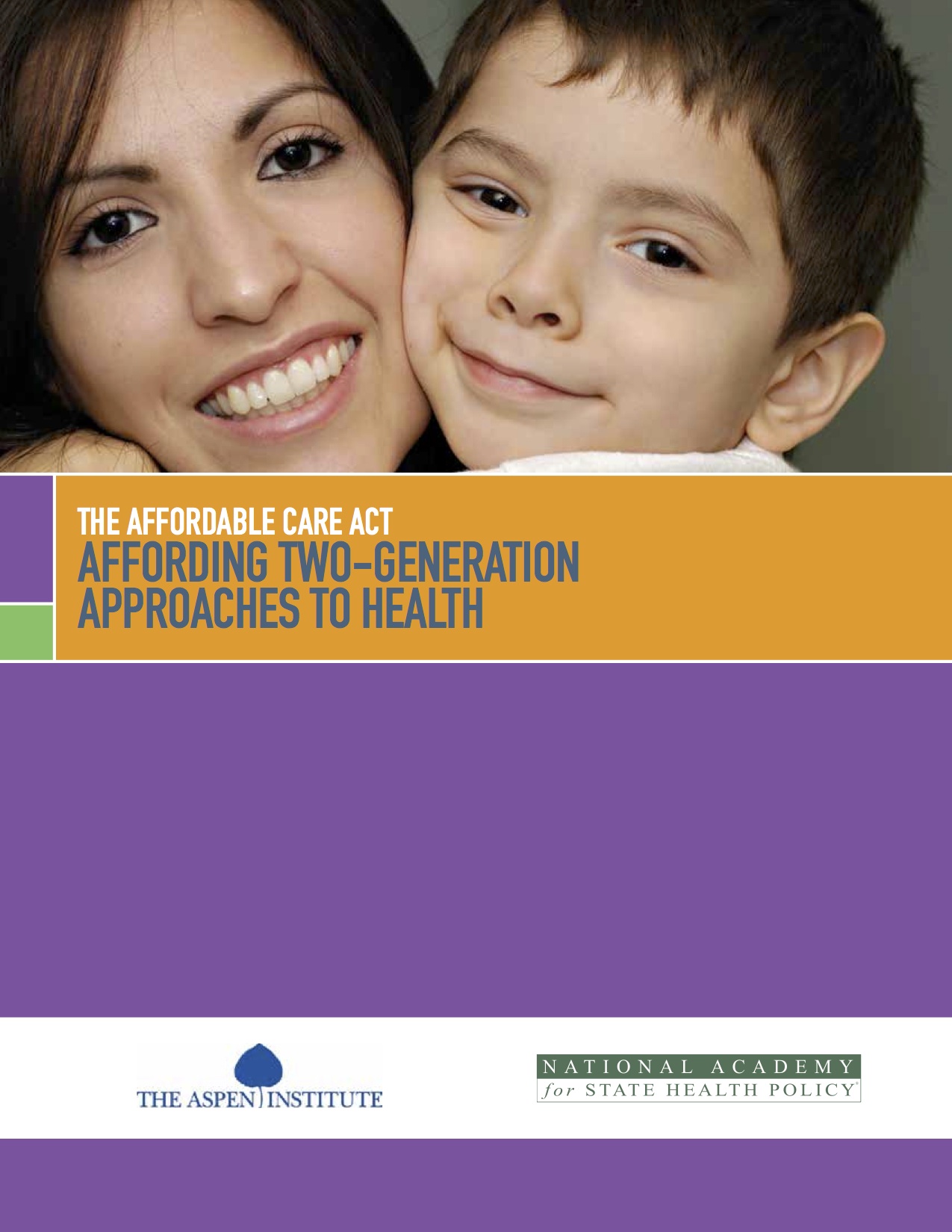
The Affordable Care Act: Affording Two-Generation Approaches to Health
Read More
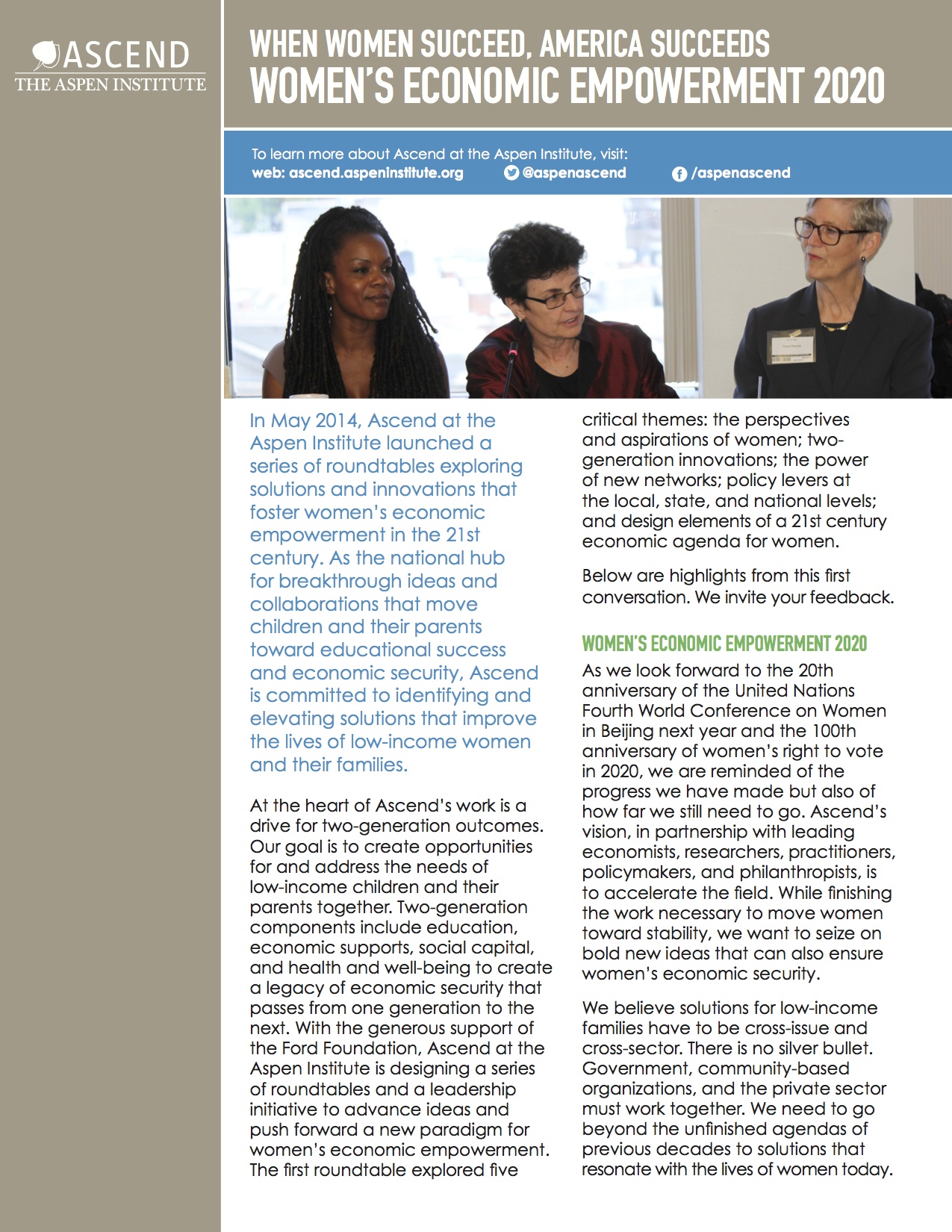
Women’s Economic Empowerment 2020
Read More
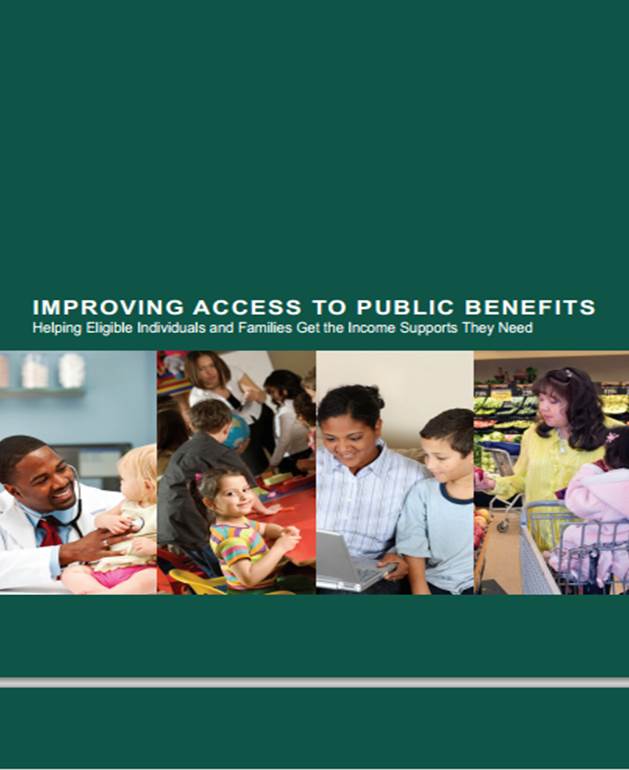
Improving Access to Public Benefits: Helping Eligible Individuals and Families Get the Income Supports They Need
Read More
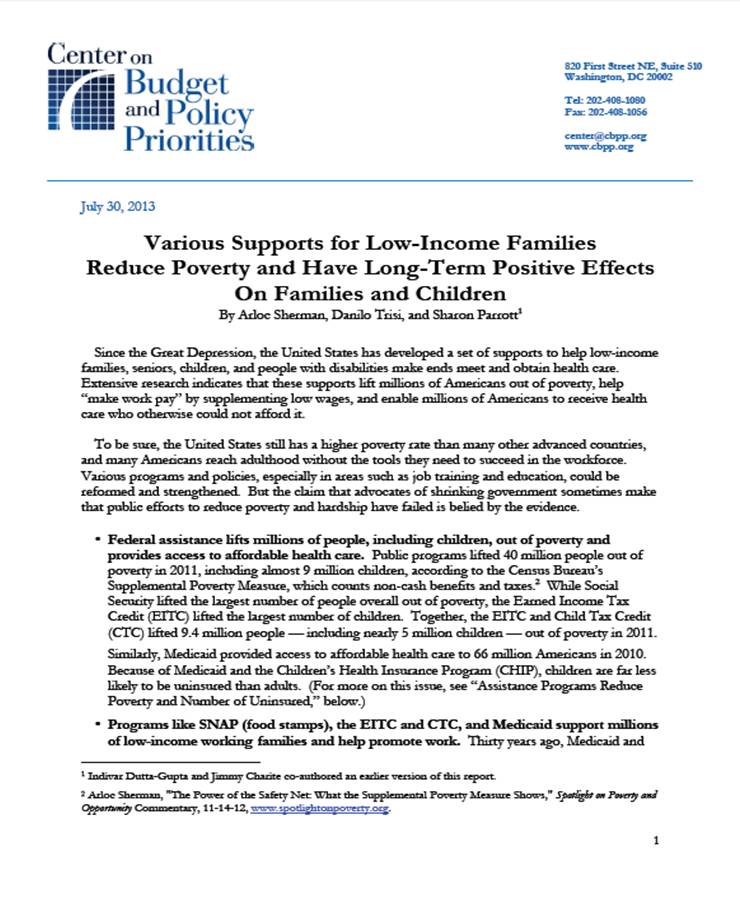
Center on Budget and Policy Priorities: July 2013 Economics Brief
Read More

Welfare Reform and the Need for a Two-Generational Approach: A Wisconsin Perspective
Read More
Contributors





